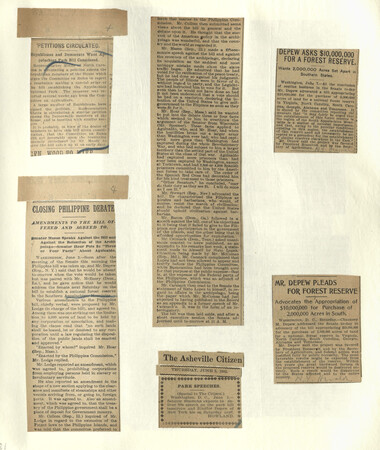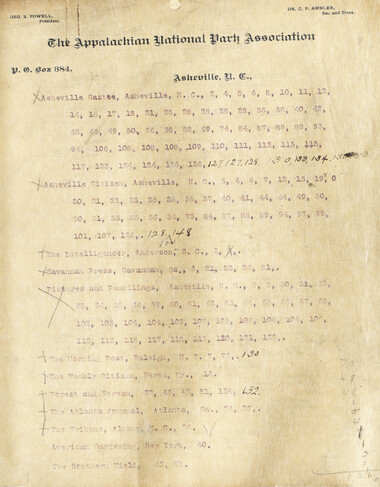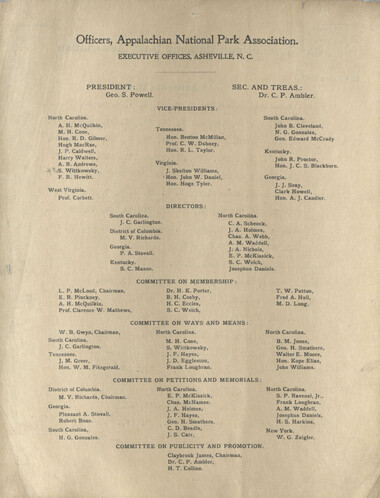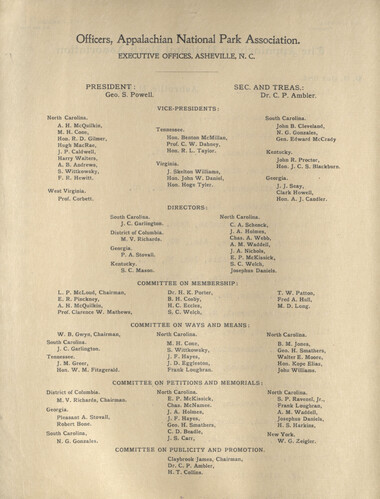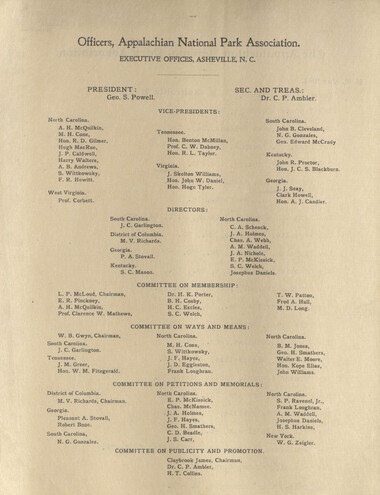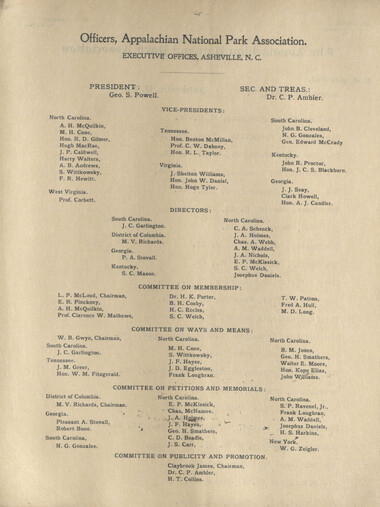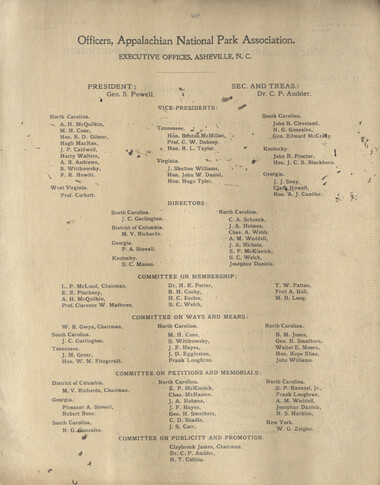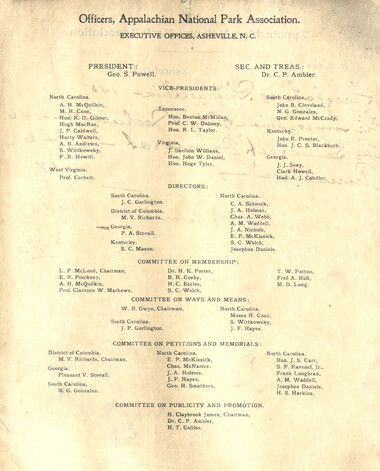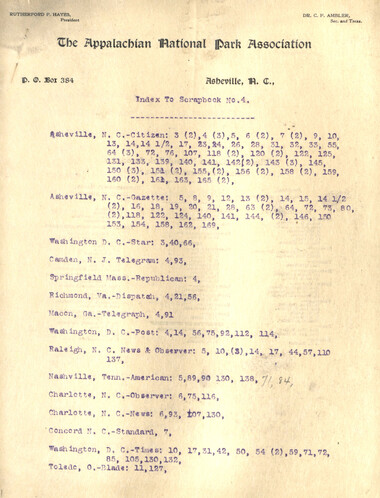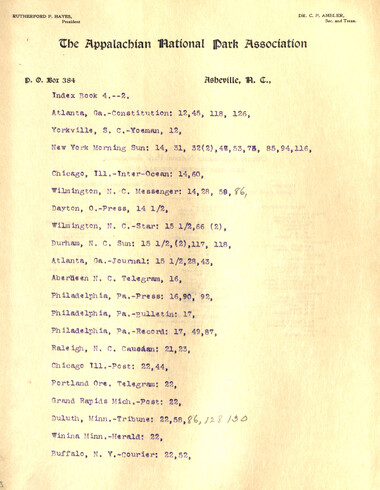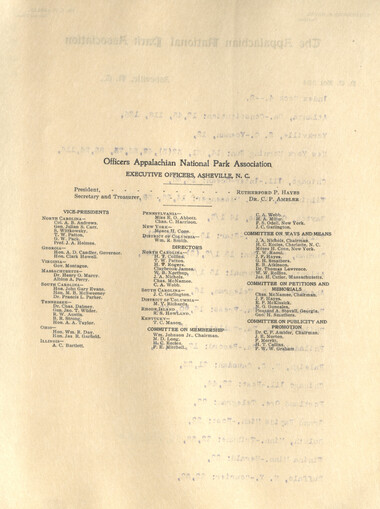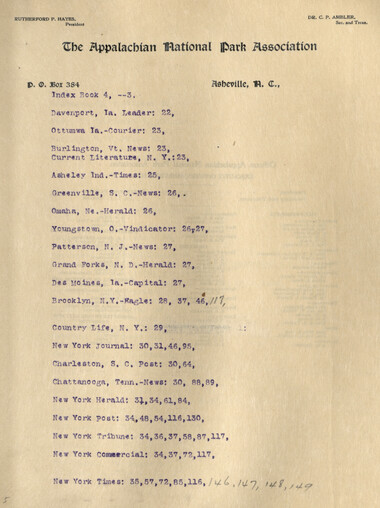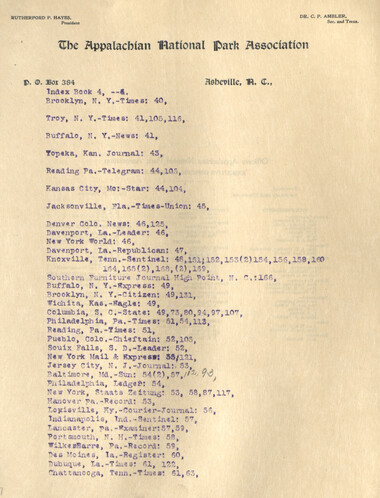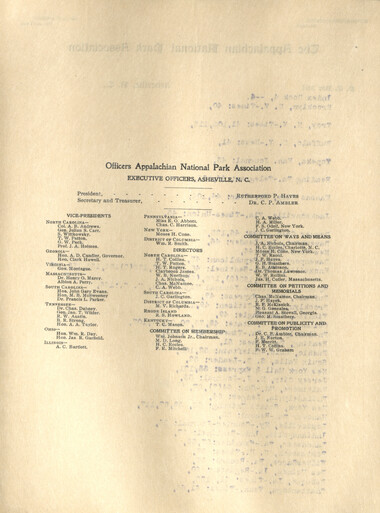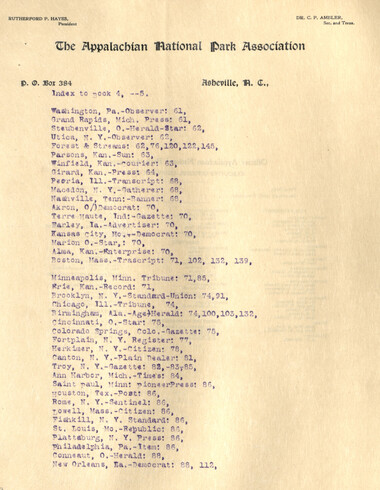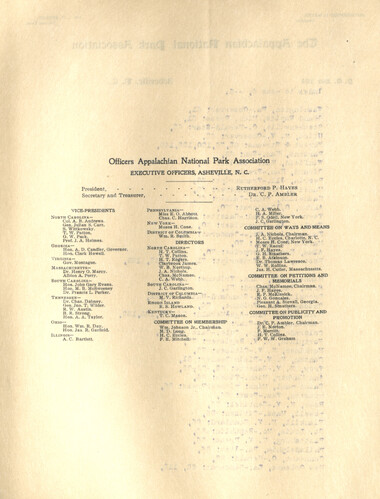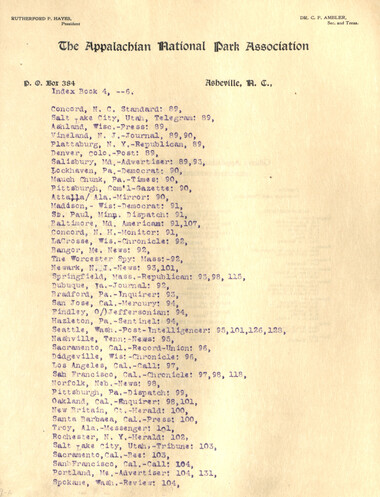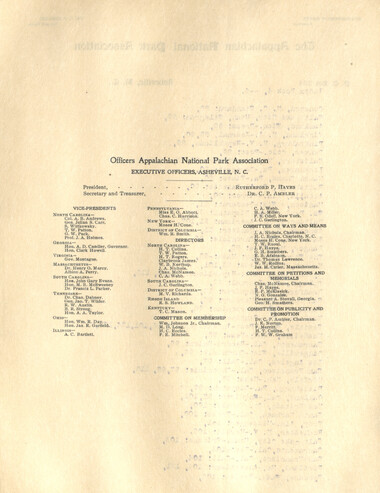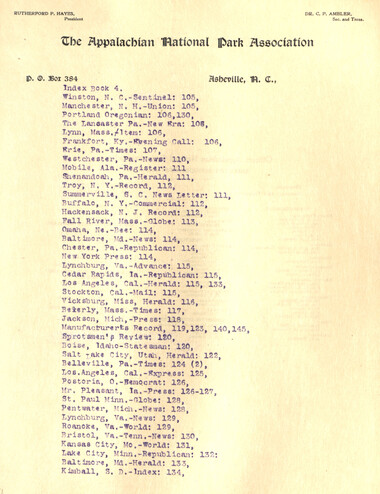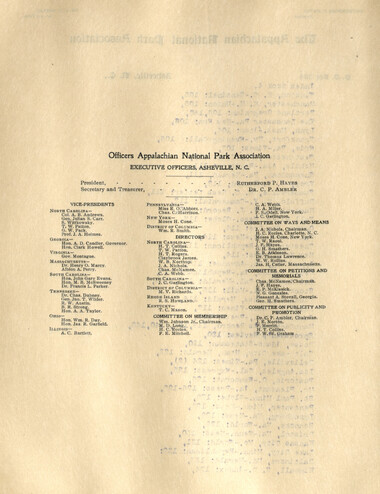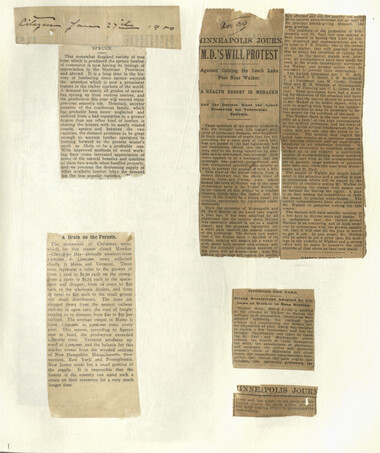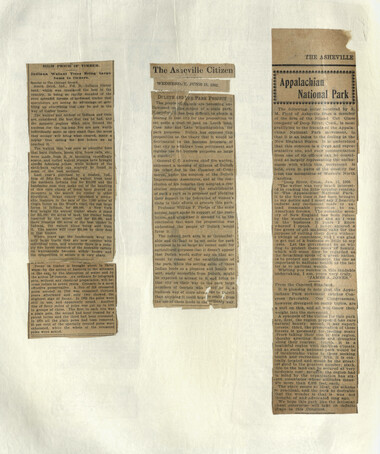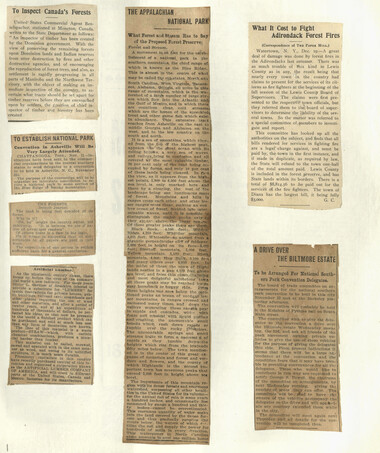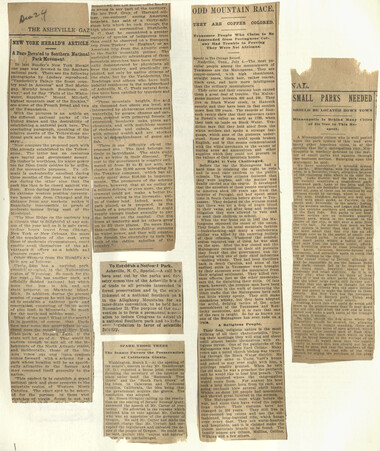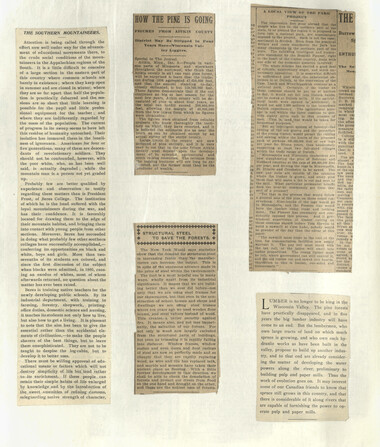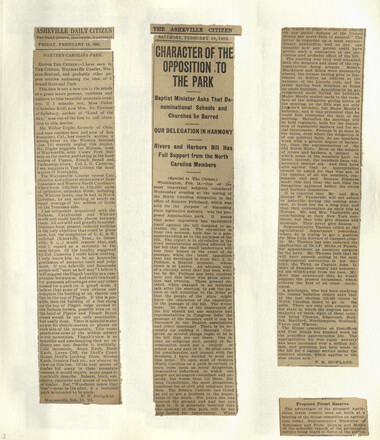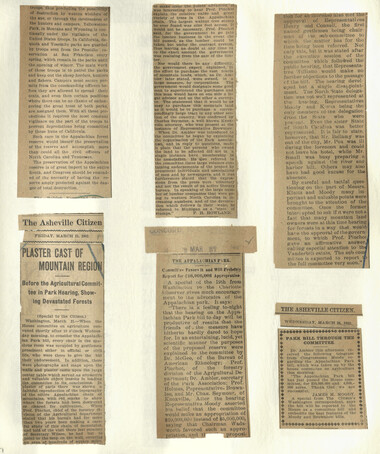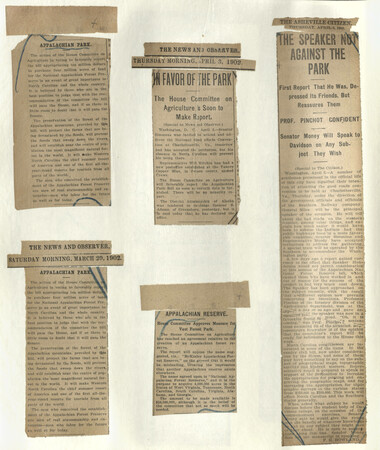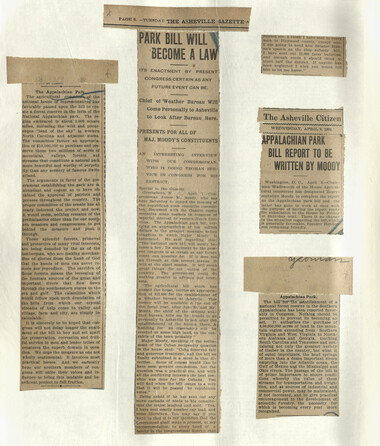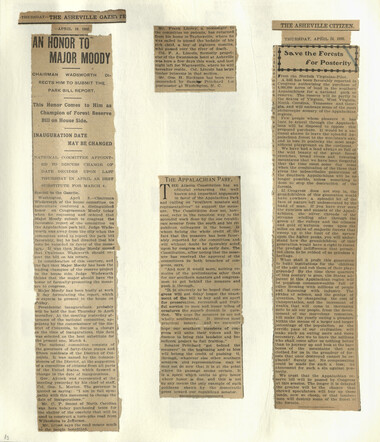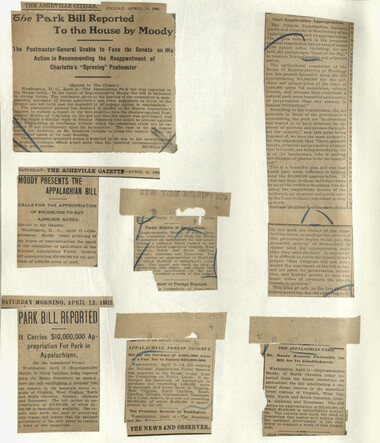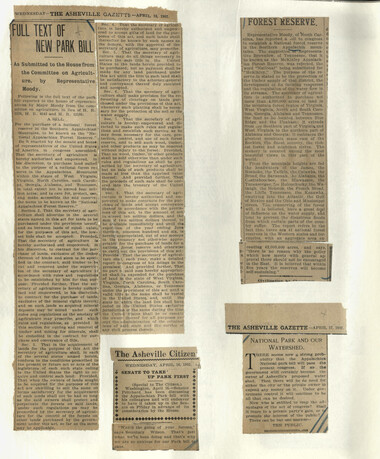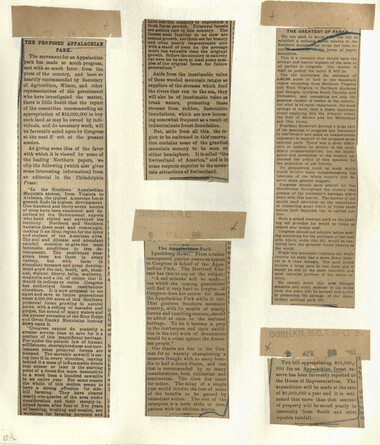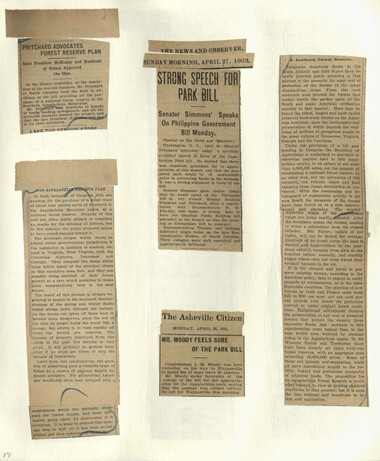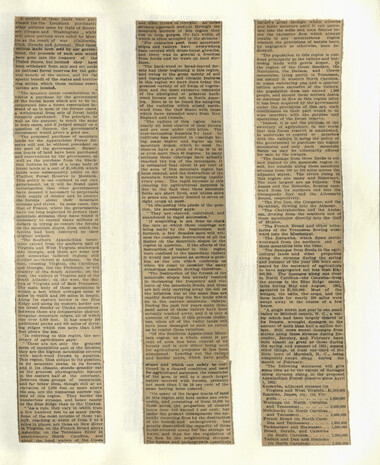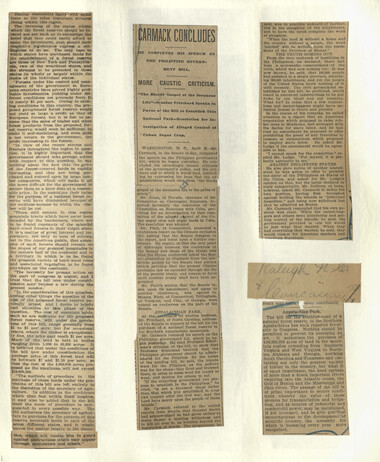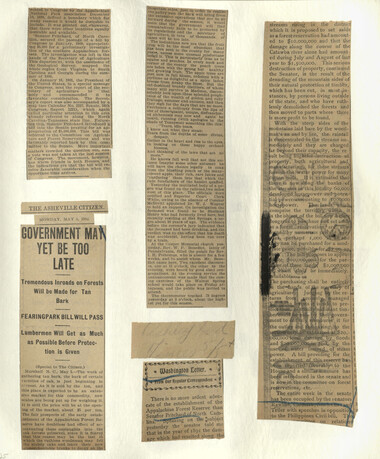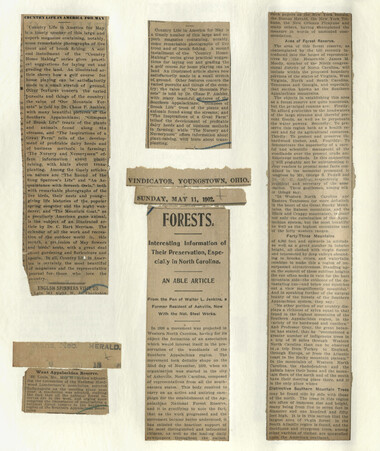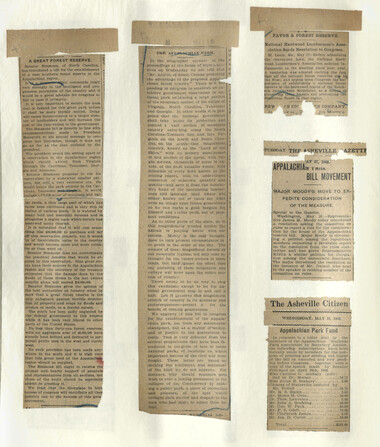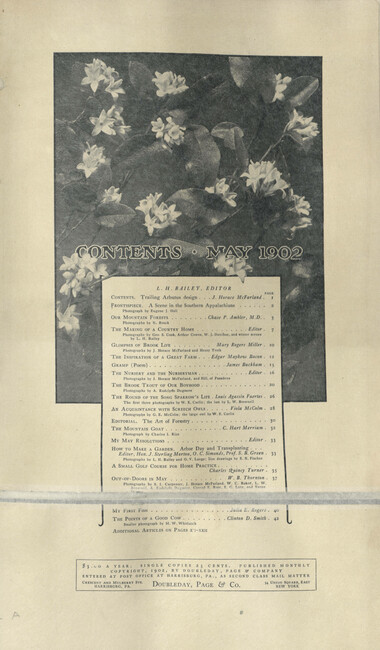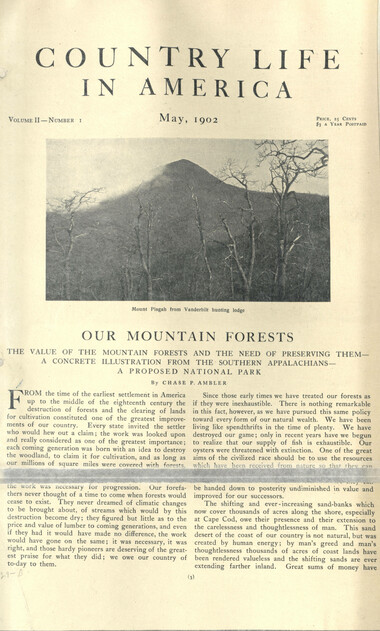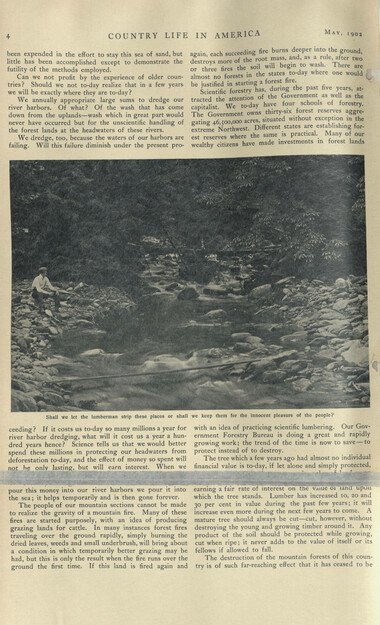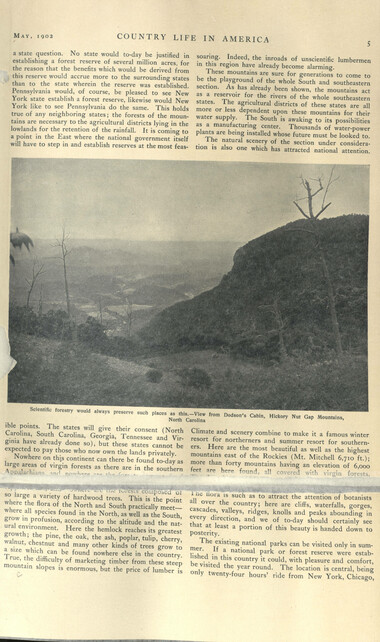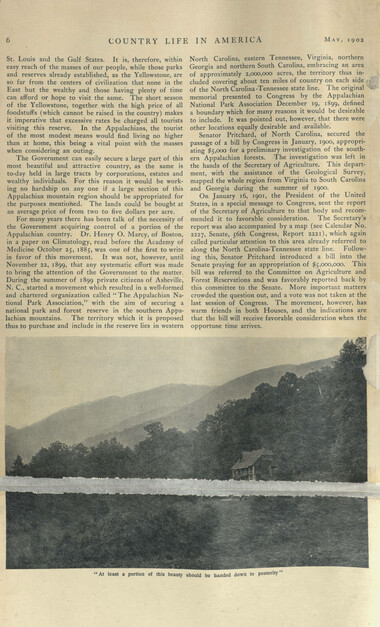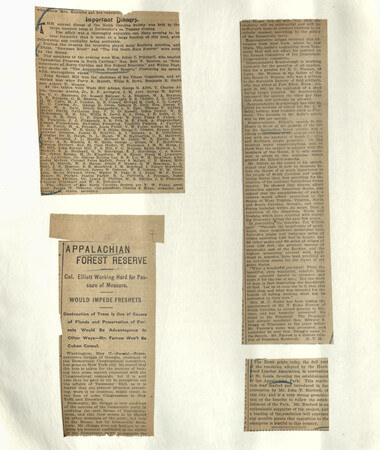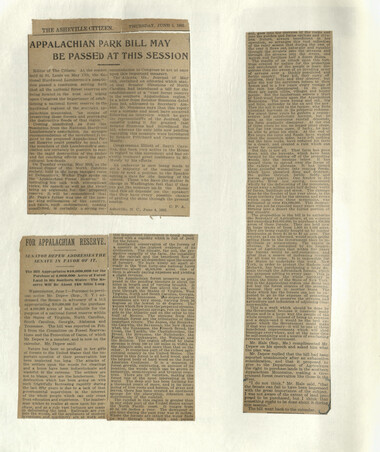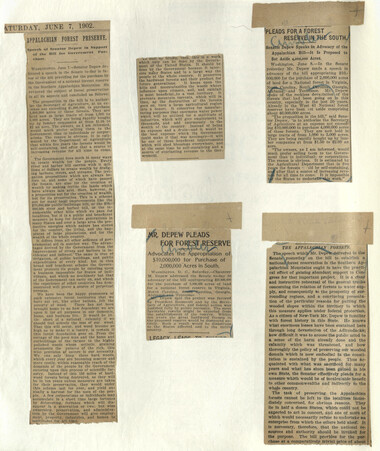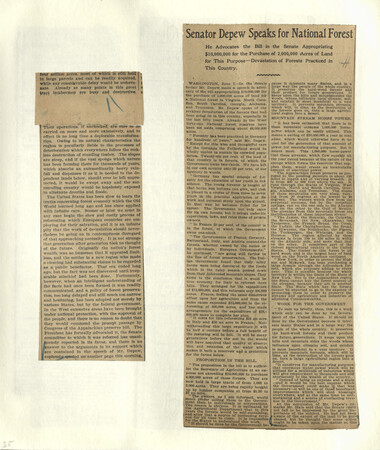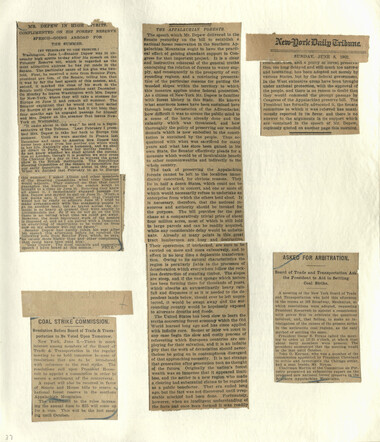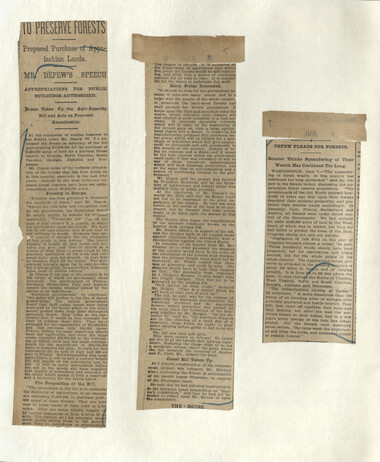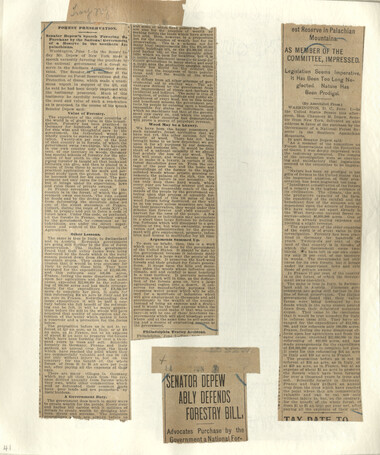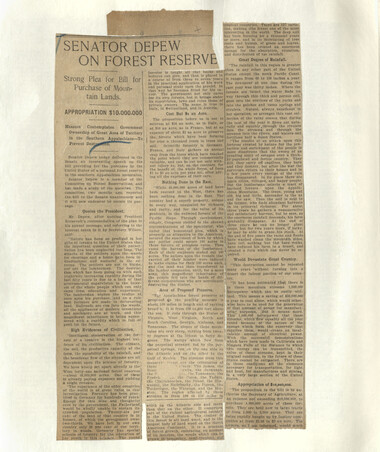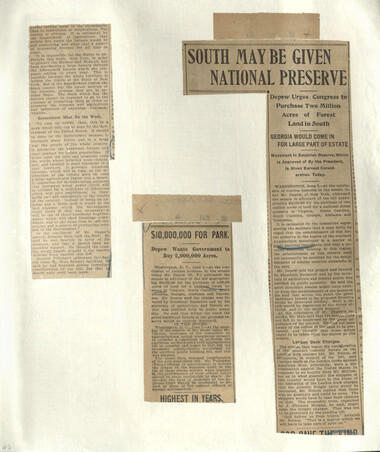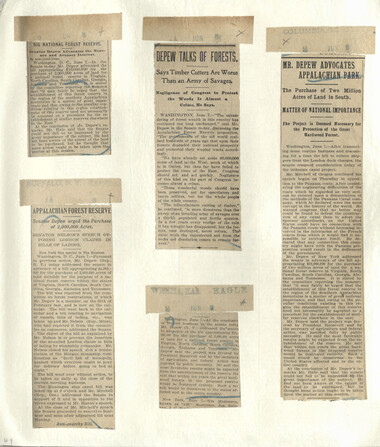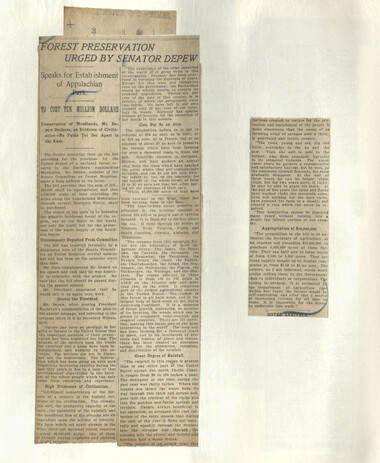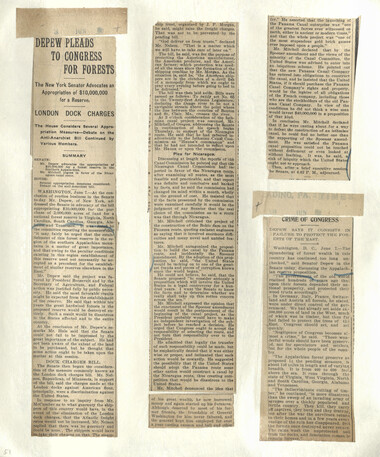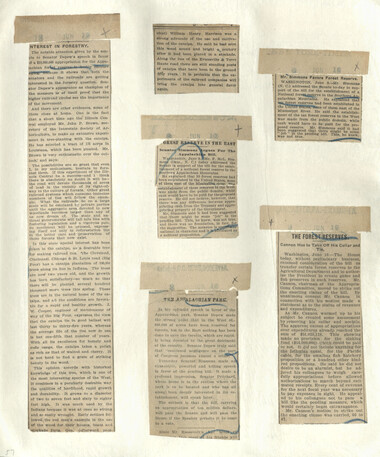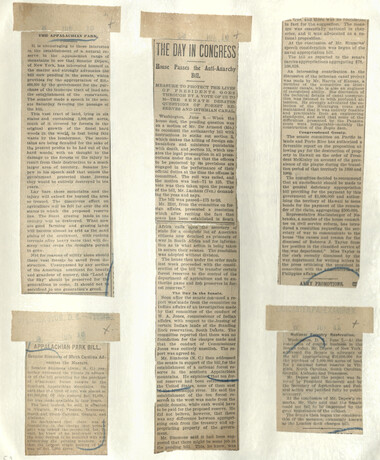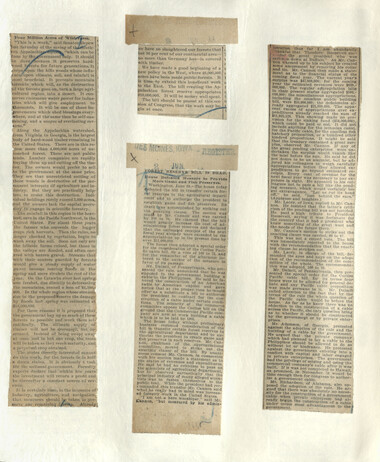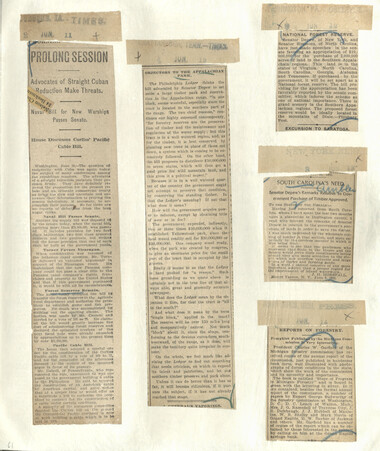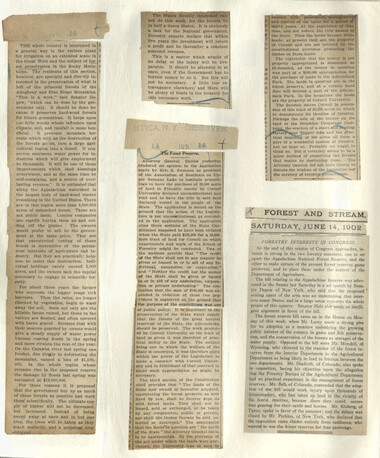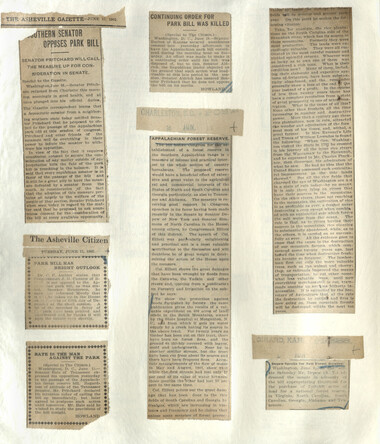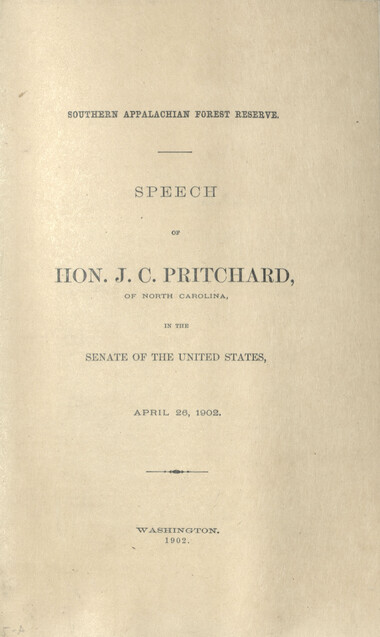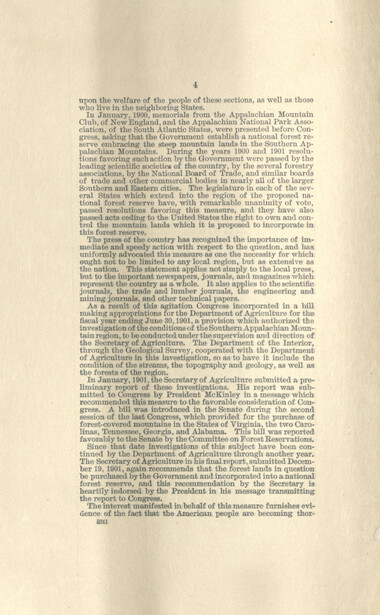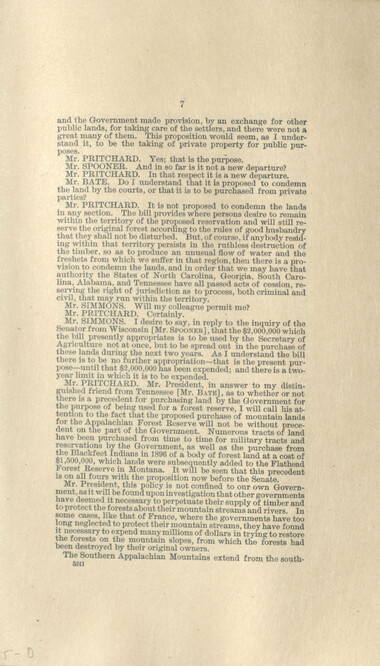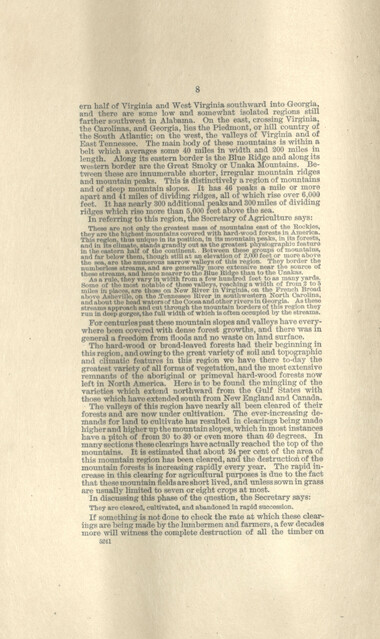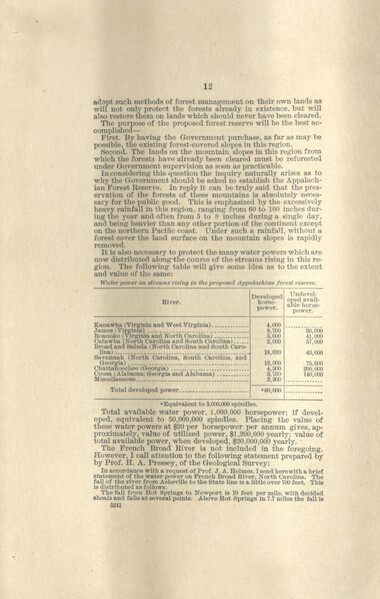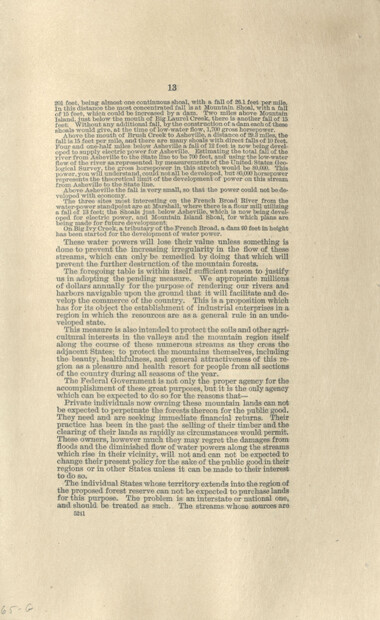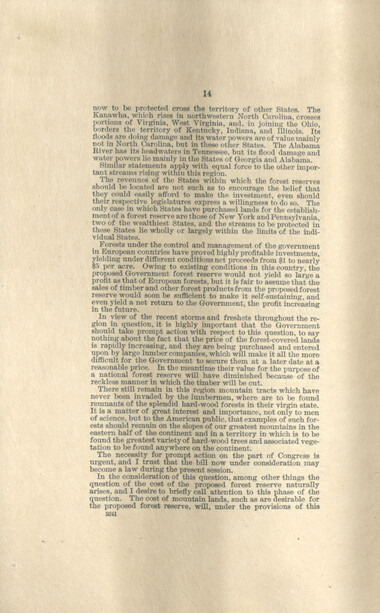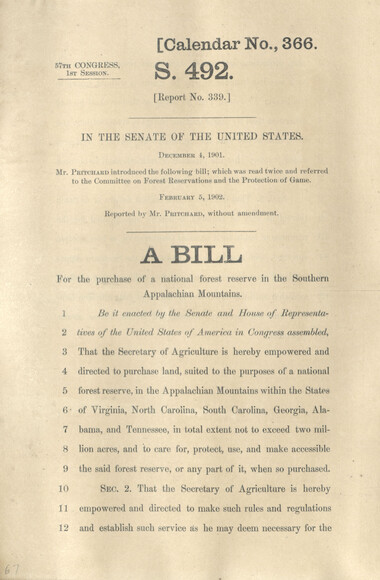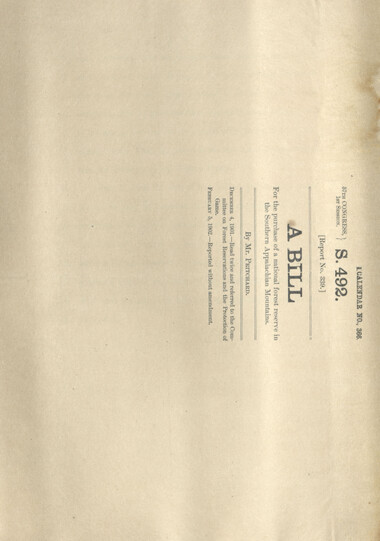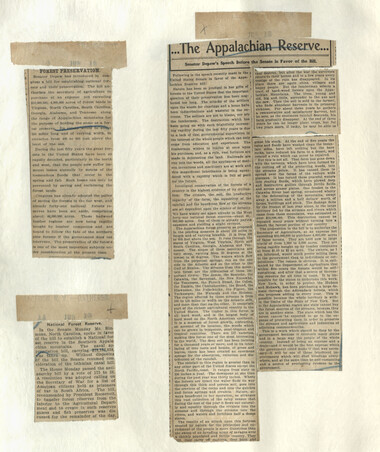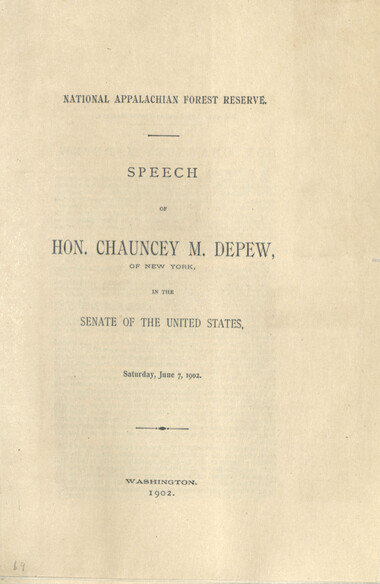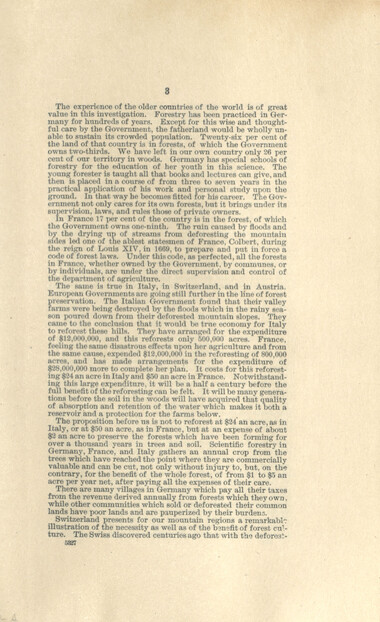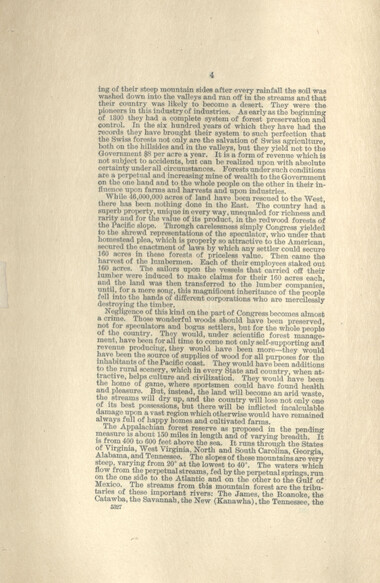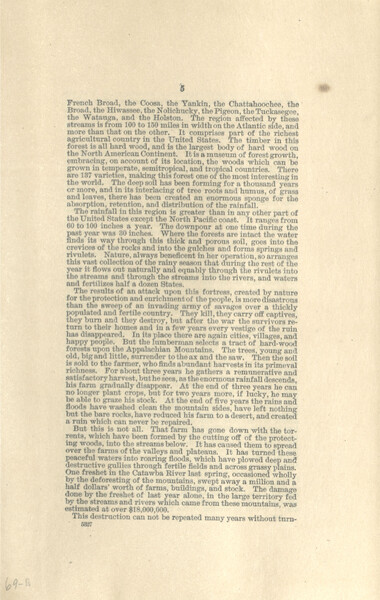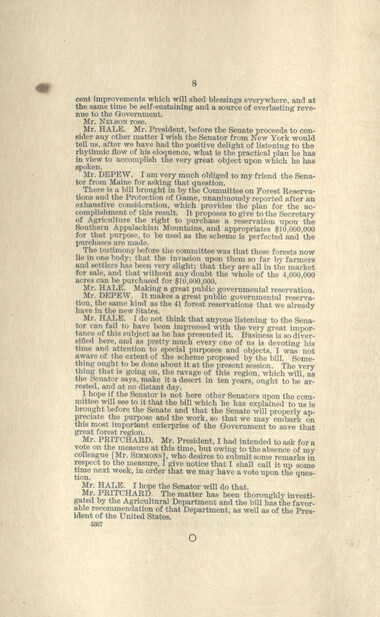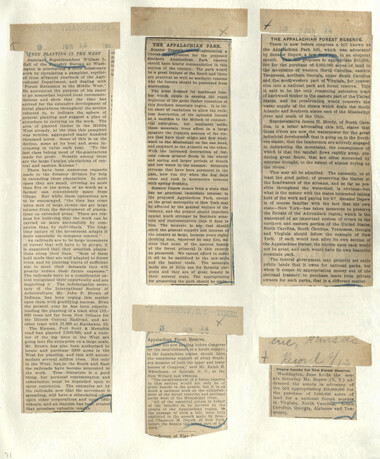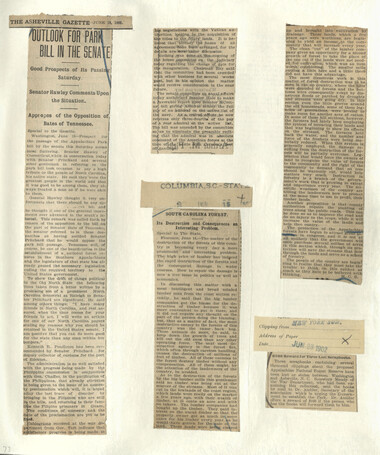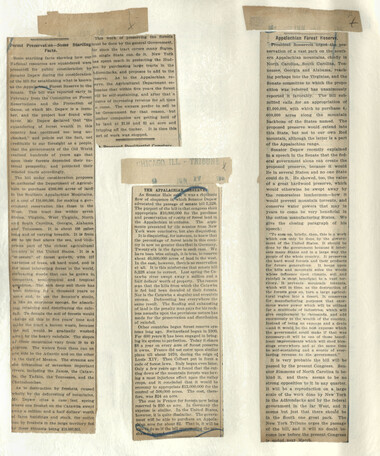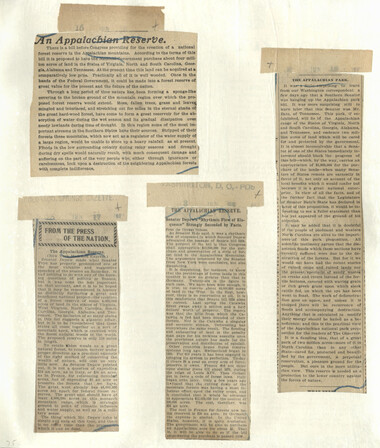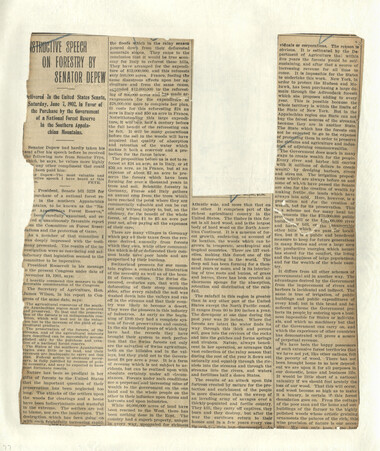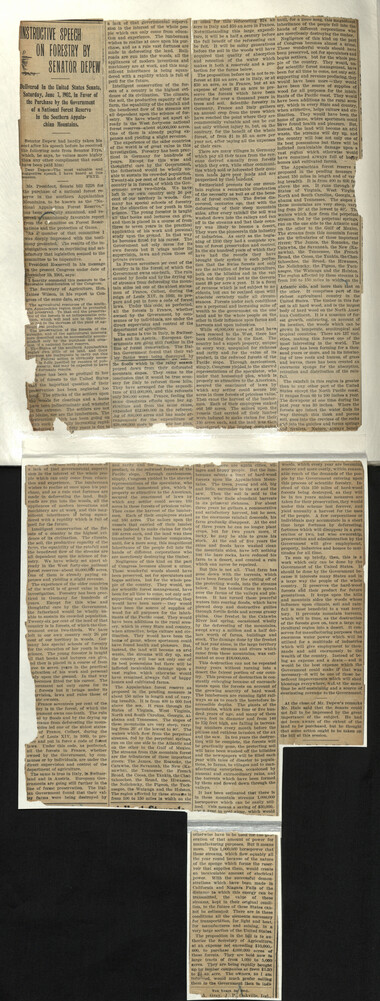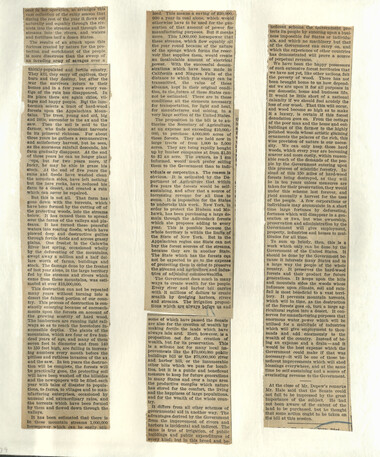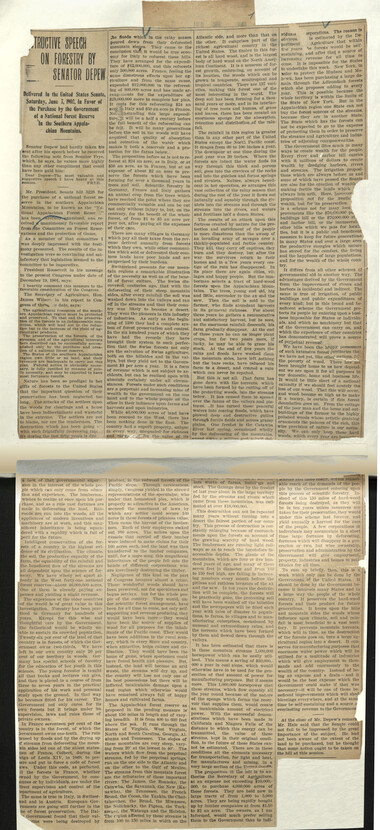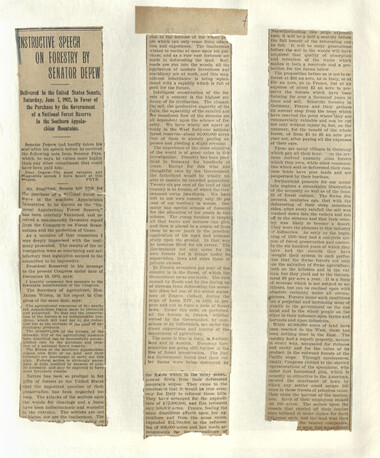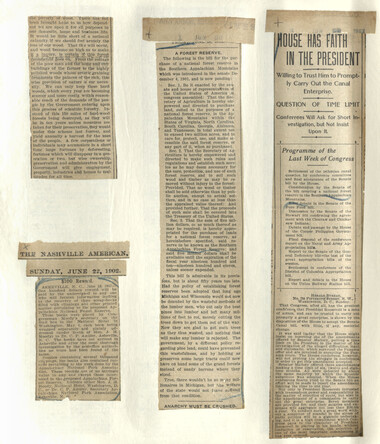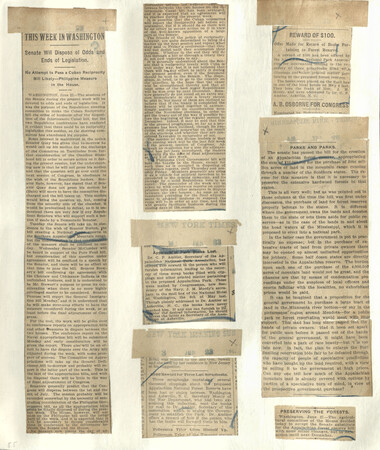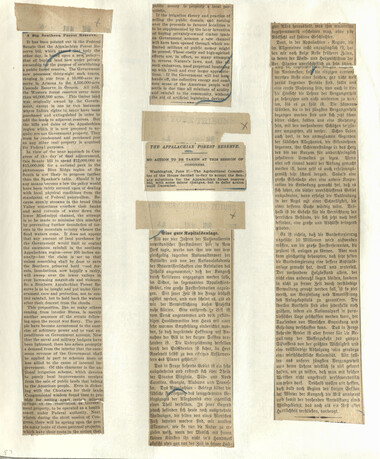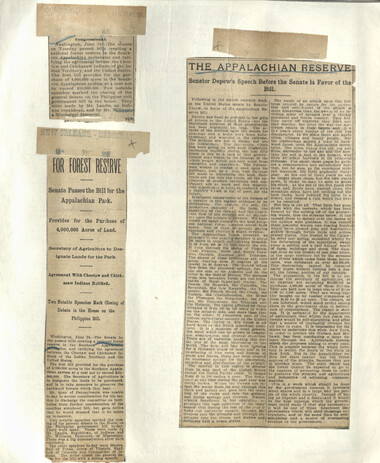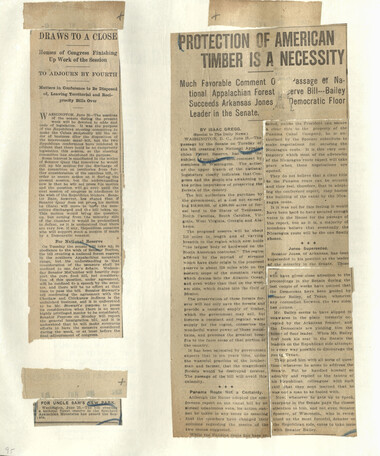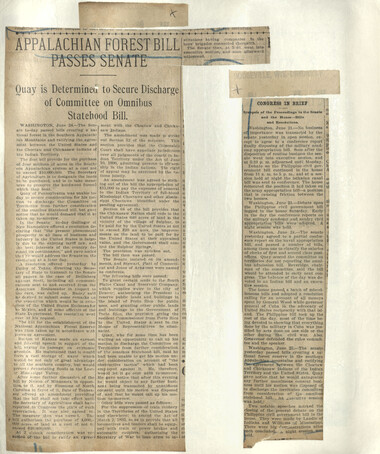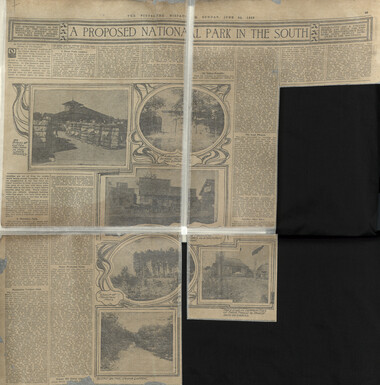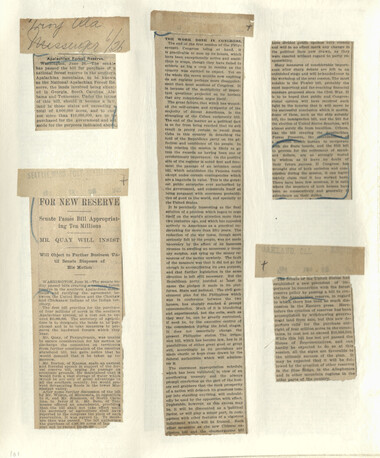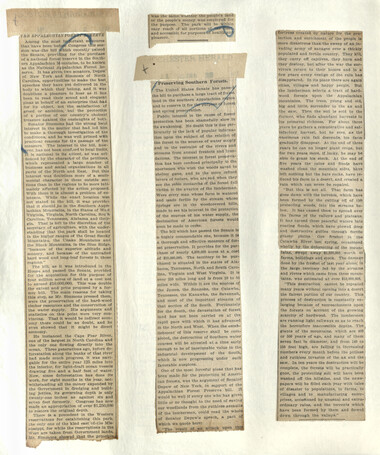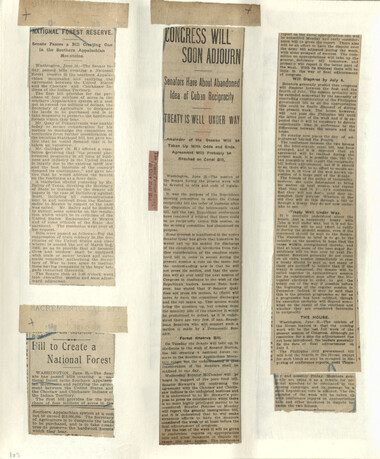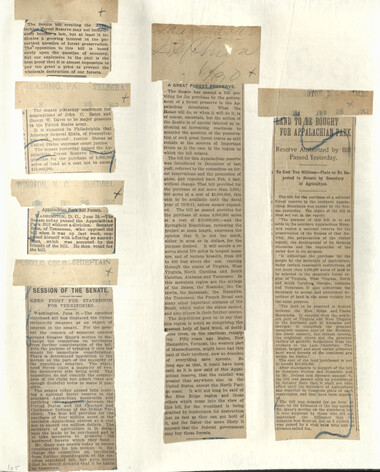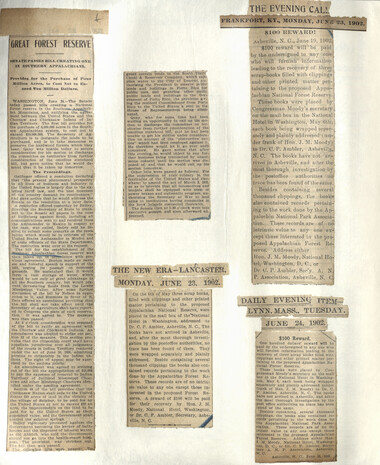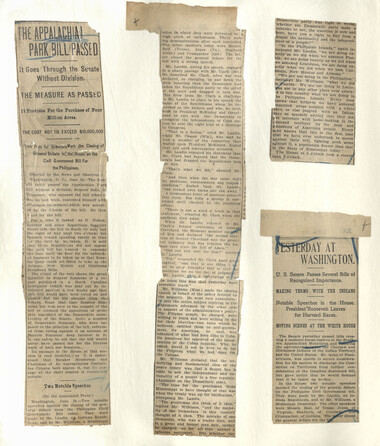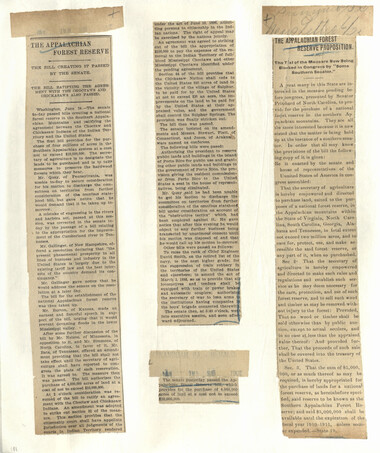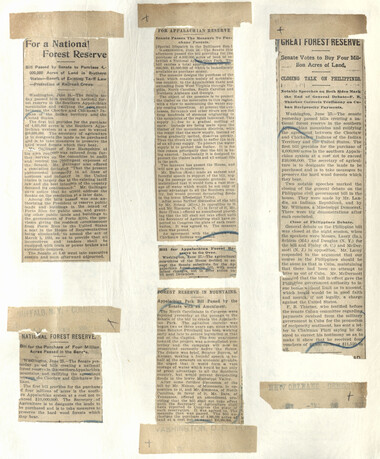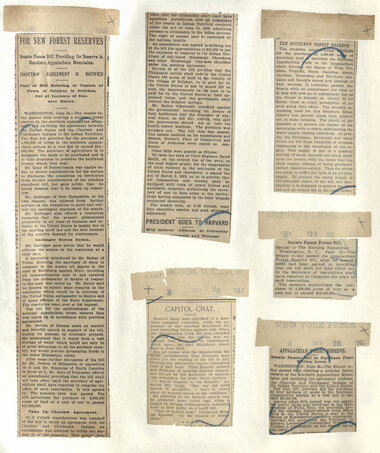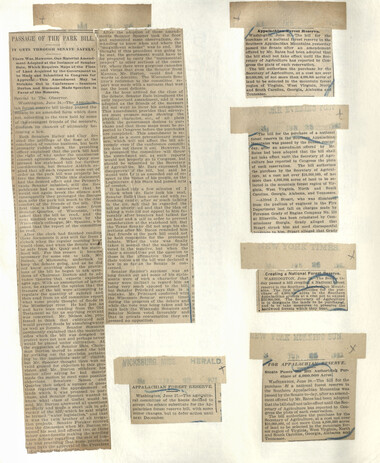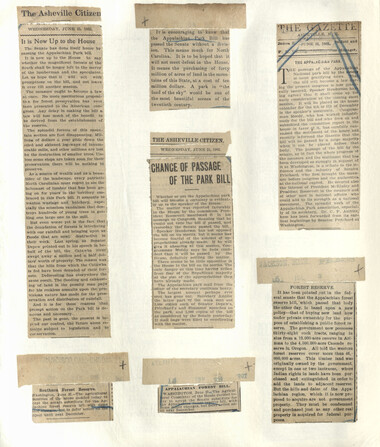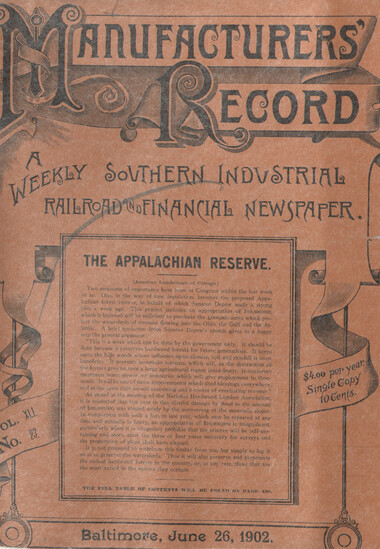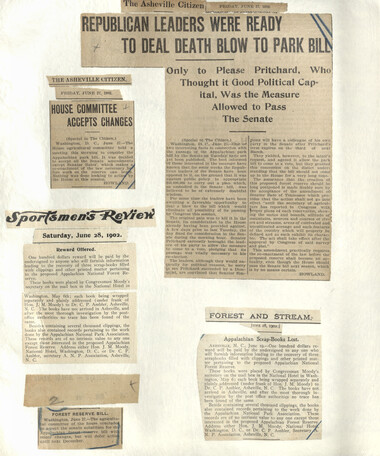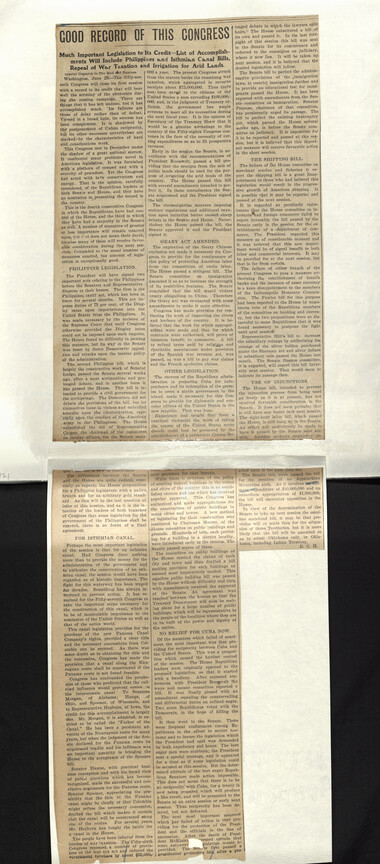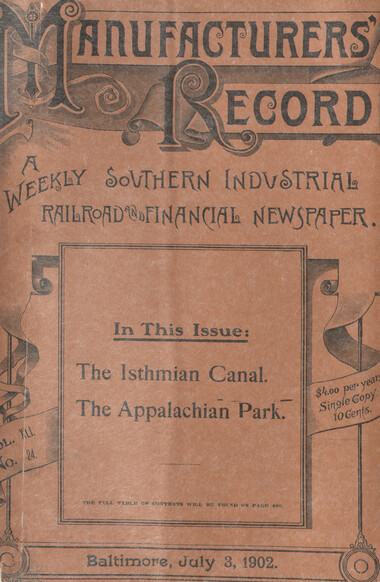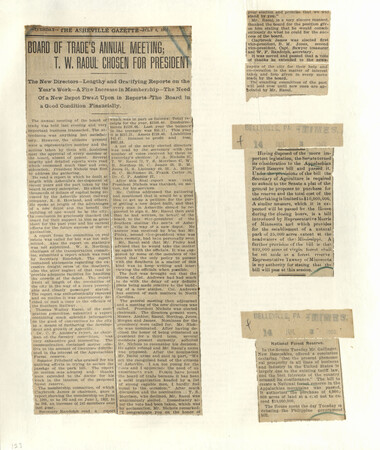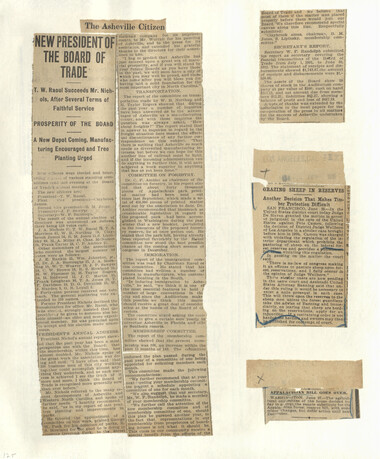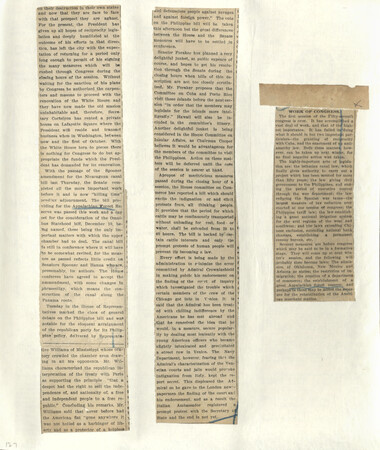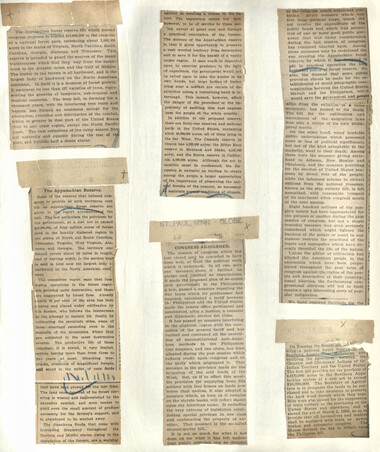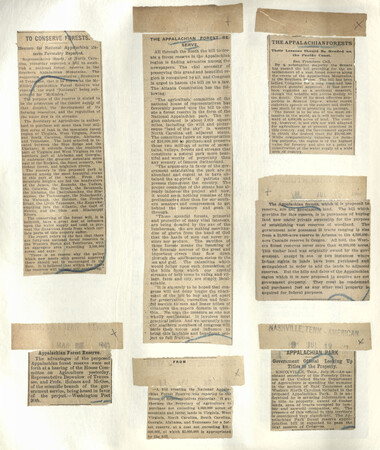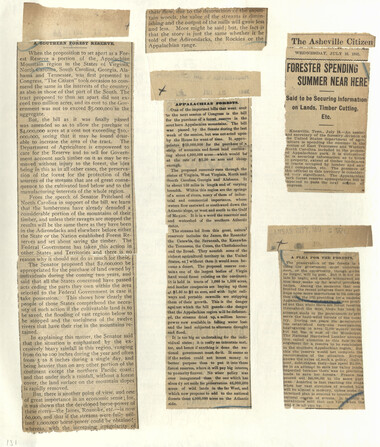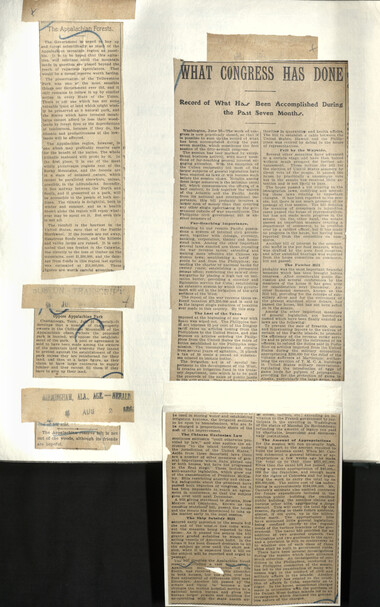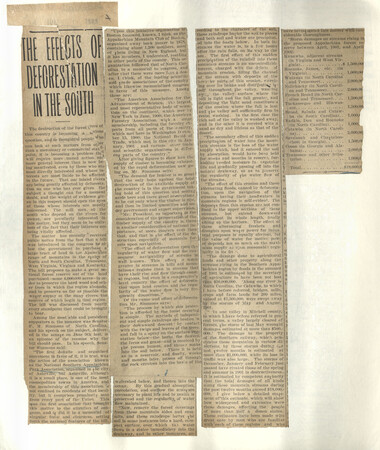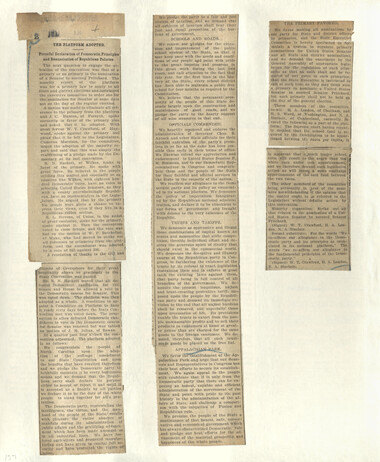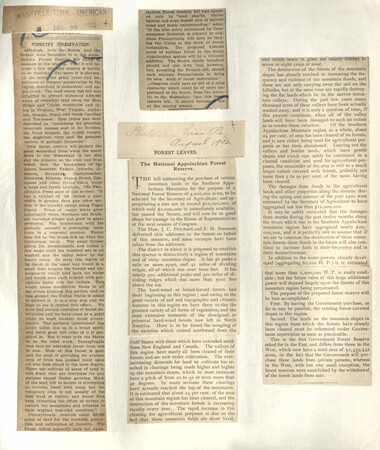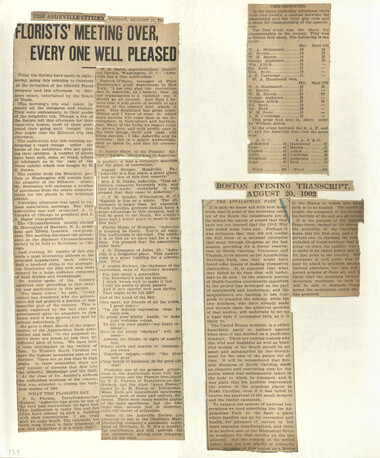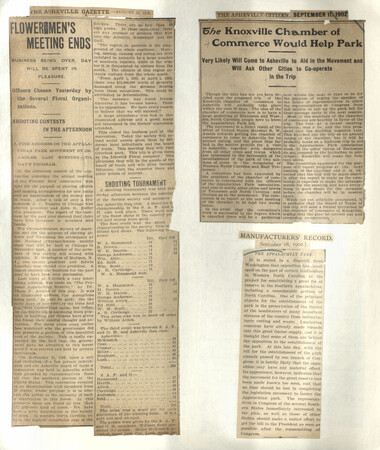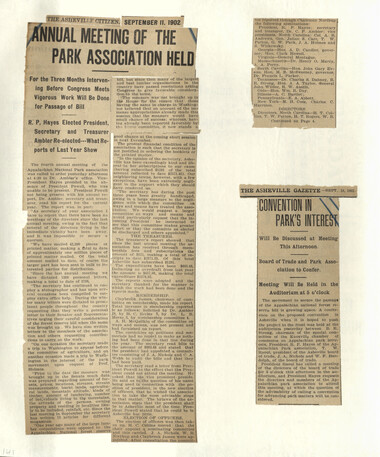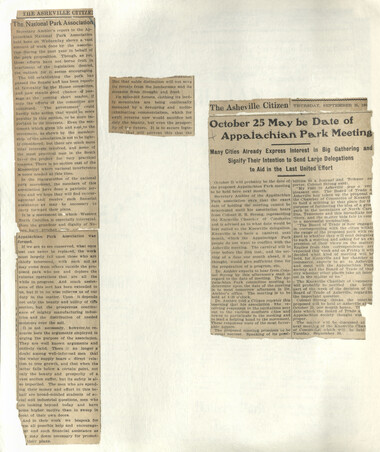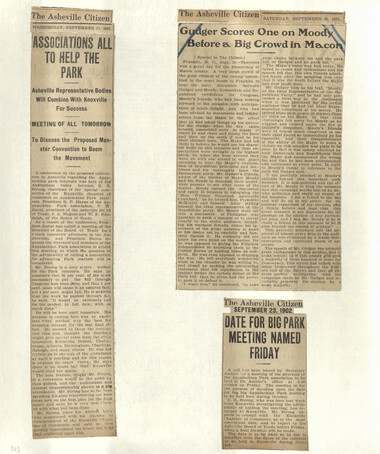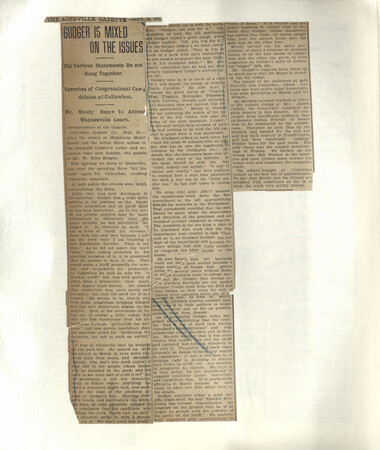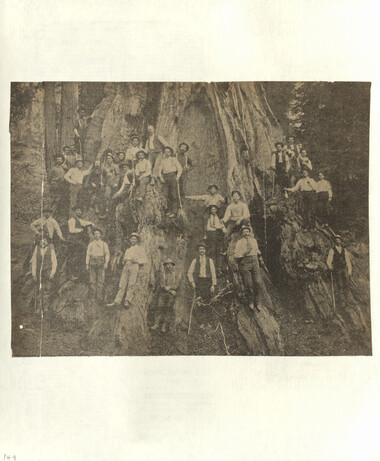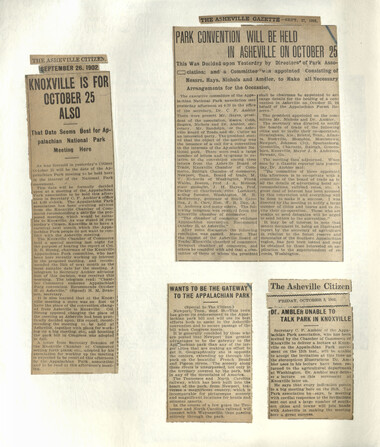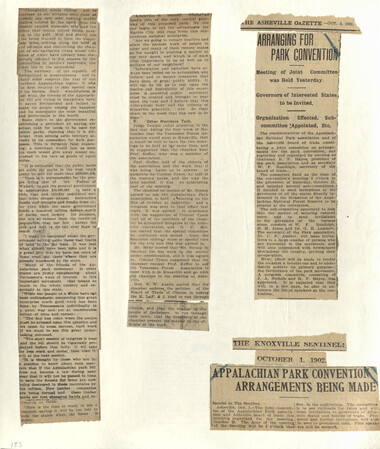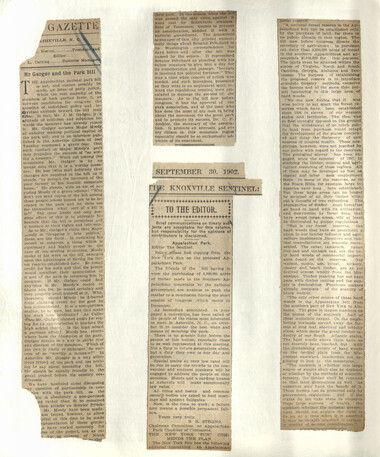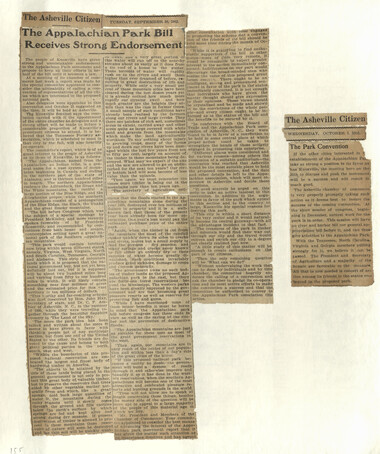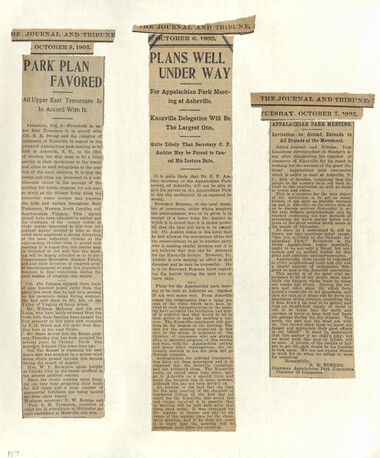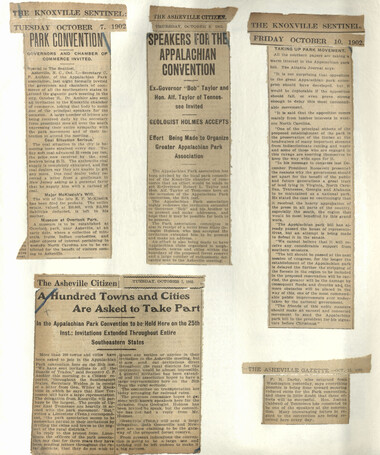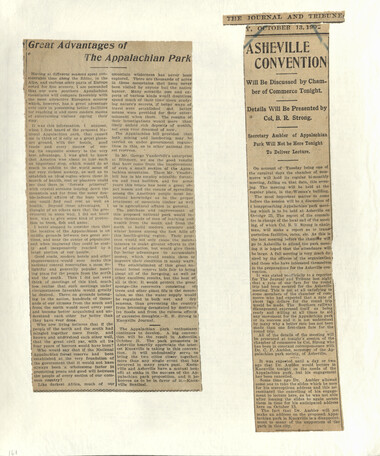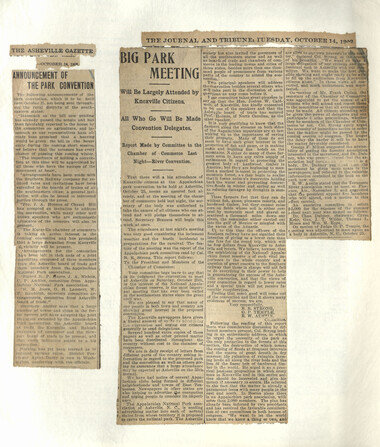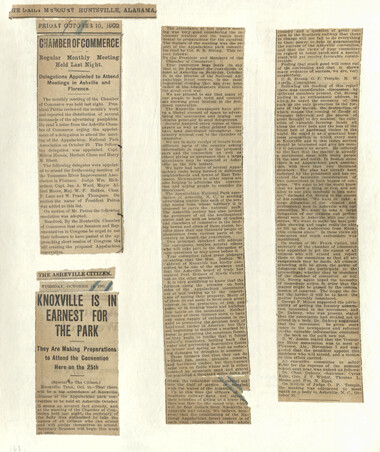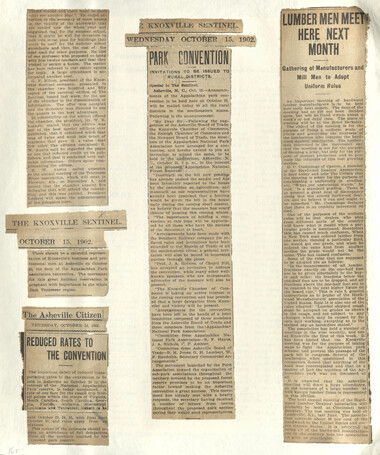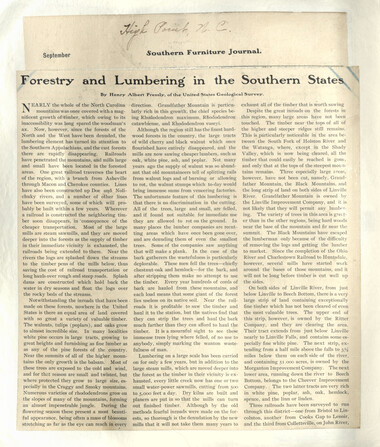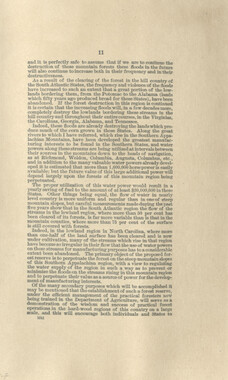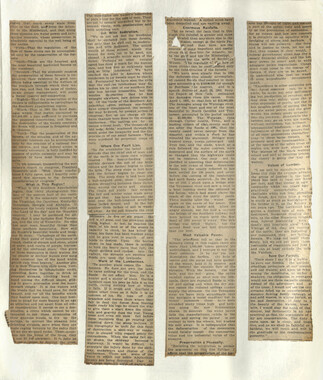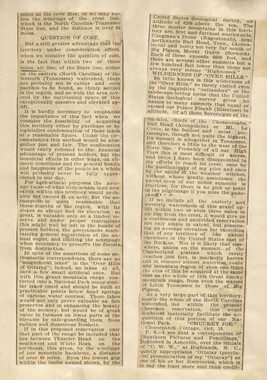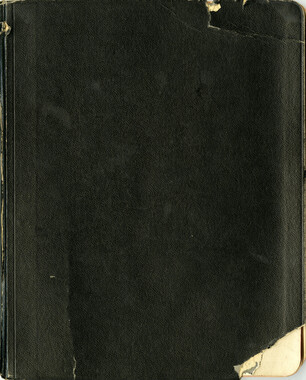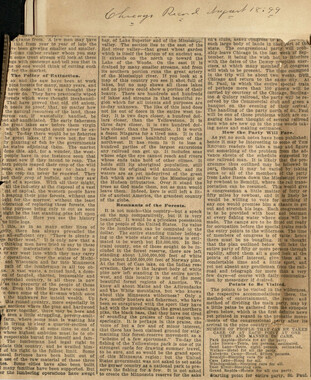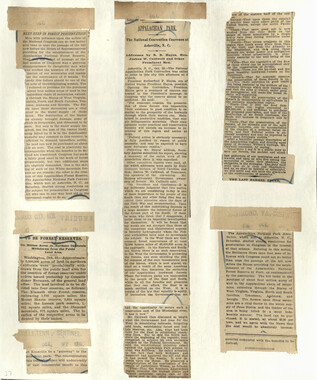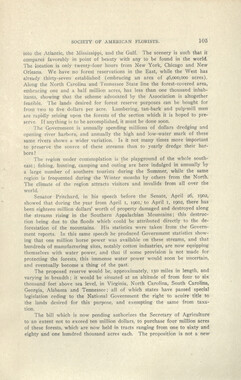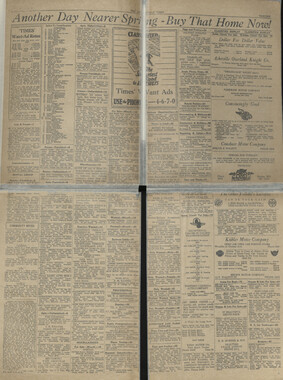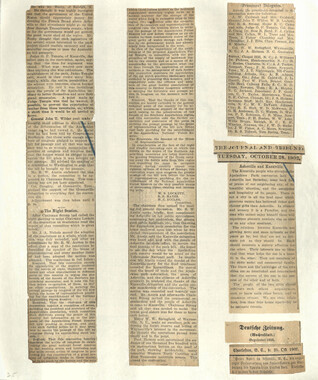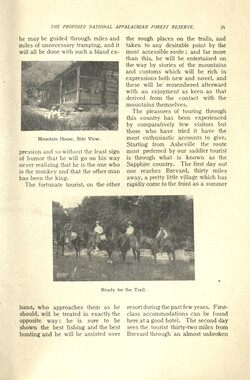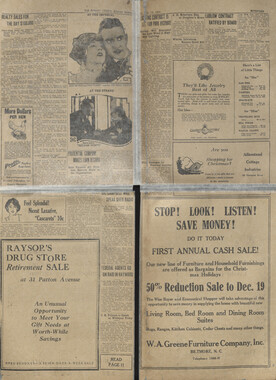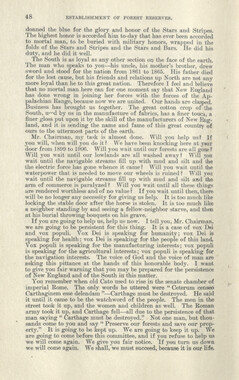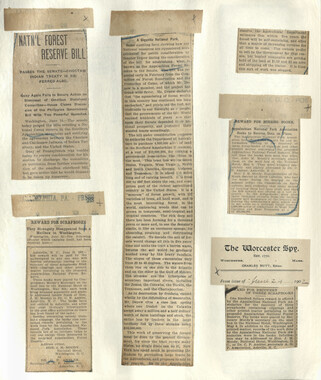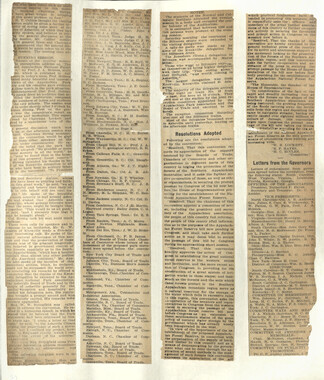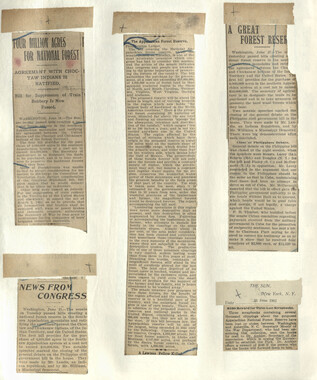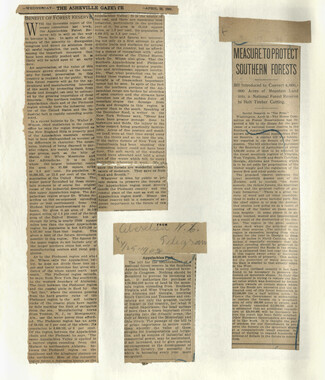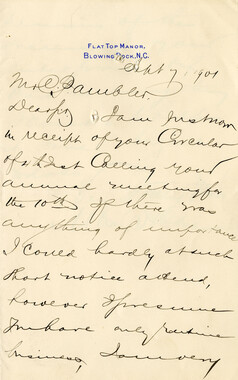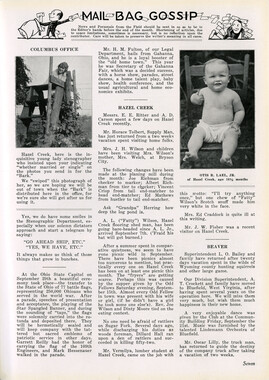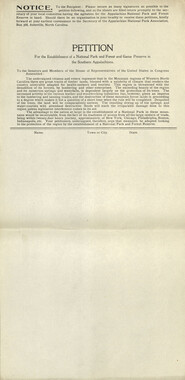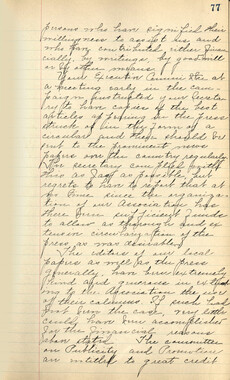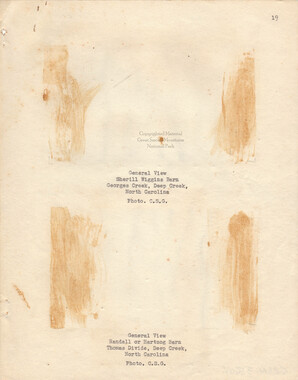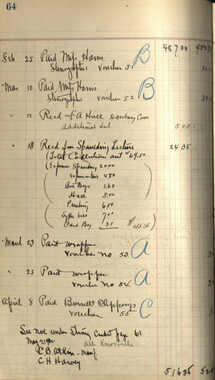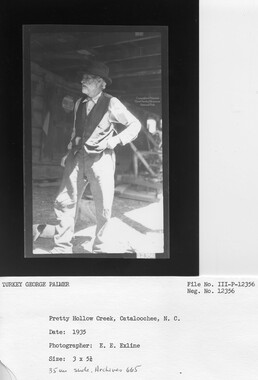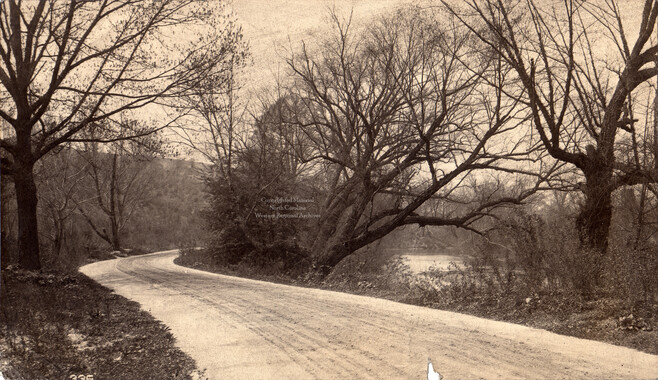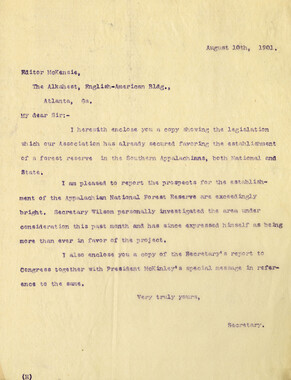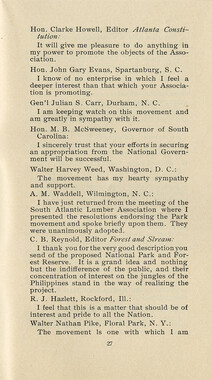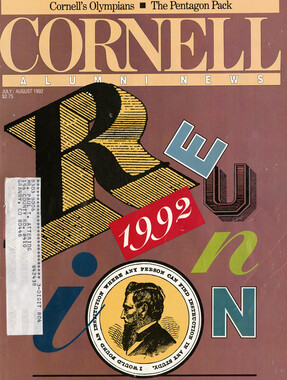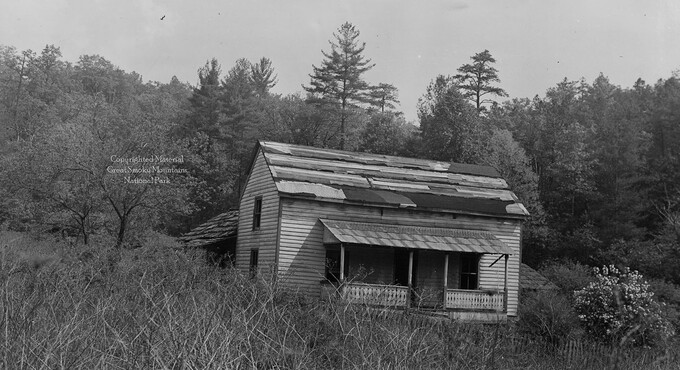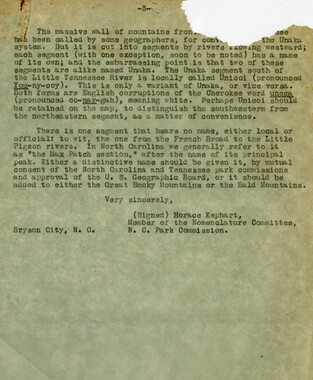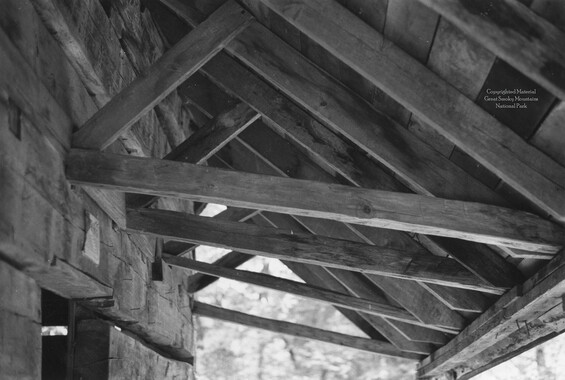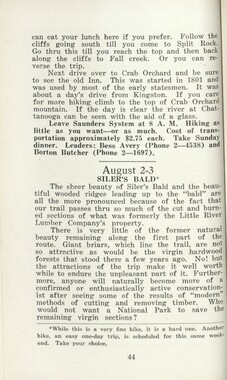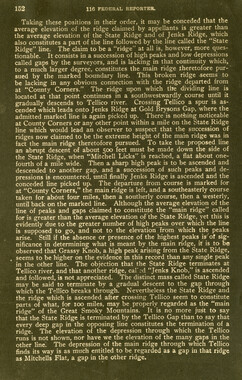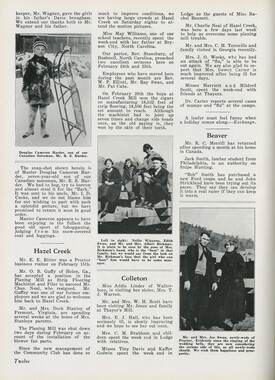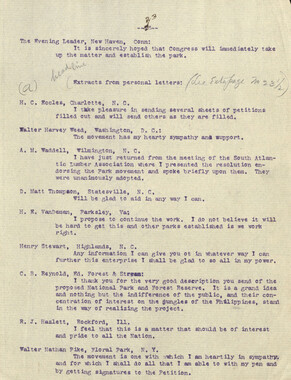Western Carolina University (20)
View all
- Canton Champion Fibre Company (2308)
- Cherokee Traditions (293)
- Civil War in Southern Appalachia (165)
- Craft Revival (1942)
- Great Smoky Mountains - A Park for America (2767)
- Highlights from Western Carolina University (430)
- Horace Kephart (941)
- Journeys Through Jackson (154)
- LGBTQIA+ Archive of Jackson County (26)
- Oral Histories of Western North Carolina (314)
- Picturing Appalachia (6772)
- Stories of Mountain Folk (413)
- Travel Western North Carolina (160)
- Western Carolina University Fine Art Museum Vitreograph Collection (129)
- Western Carolina University Herbarium (92)
- Western Carolina University: Making Memories (708)
- Western Carolina University Publications (2283)
- Western Carolina University Restricted Electronic Theses and Dissertations (146)
- Western North Carolina Regional Maps (71)
- World War II in Southern Appalachia (131)
University of North Carolina Asheville (6)
View all
- Appalachian National Park Association (53)
- Berry, Walter (76)
- Champion Fibre Company (5)
- Fromer, Irving Rhodes, 1913-1994 (70)
- Grant, George Alexander, 1891-1964 (96)
- Kephart, Horace, 1862-1931 (23)
- Masa, George, 1881-1933 (17)
- North Carolina Park Commission (105)
- Roth, Albert, 1890-1974 (142)
- Schenck, Carl Alwin, 1868-1955 (1)
- Stearns, I. K. (2)
- Thompson, James Edward, 1880-1976 (45)
- Weaver, Zebulon, 1872-1948 (55)
- Wilburn, Hiram Coleman, 1880-1967 (72)
- Allanstand Cottage Industries (0)
- Bennett, Kelly, 1890-1974 (0)
- Brasstown Carvers (0)
- Cain, Doreyl Ammons (0)
- Carver, George Washington, 1864?-1943 (0)
- Cathey, Joseph, 1803-1874 (0)
- Champion Paper and Fibre Company (0)
- Cherokee Indian Fair Association (0)
- Cherokee Language Program (0)
- Crittenden, Lorraine (0)
- Crowe, Amanda (0)
- Edmonston, Thomas Benton, 1842-1907 (0)
- Ensley, A. L. (Abraham Lincoln), 1865-1948 (0)
- George Butz (BFS 1907) (0)
- Goodrich, Frances Louisa (0)
- Heard, Marian Gladys (0)
- Kephart, Calvin, 1883-1969 (0)
- Kephart, Laura, 1862-1954 (0)
- Laney, Gideon Thomas, 1889-1976 (0)
- McElhinney, William Julian, 1896-1953 (0)
- Niggli, Josephina, 1910-1983 (0)
- Osborne, Kezia Stradley (0)
- Owens, Samuel Robert, 1918-1995 (0)
- Penland Weavers and Potters (0)
- Rhodes, Judy (0)
- Roberts, Vivienne (0)
- Sherrill's Photography Studio (0)
- Smith, Edward Clark (0)
- Southern Highland Handicraft Guild (0)
- Southern Highlanders, Inc. (0)
- Stalcup, Jesse Bryson (0)
- United States. Indian Arts and Crafts Board (0)
- USFS (0)
- Vance, Zebulon Baird, 1830-1894 (0)
- Western Carolina College (0)
- Western Carolina Teachers College (0)
- Western Carolina University (0)
- Western Carolina University. Mountain Heritage Center (0)
- Whitman, Walt, 1819-1892 (0)
- Williams, Isadora (0)
- 1810s (1)
- 1840s (1)
- 1850s (2)
- 1860s (3)
- 1870s (4)
- 1880s (7)
- 1890s (64)
- 1900s (294)
- 1910s (227)
- 1920s (461)
- 1930s (1585)
- 1940s (82)
- 1950s (15)
- 1960s (13)
- 1970s (47)
- 1980s (14)
- 1990s (17)
- 2000s (31)
- 2010s (1)
- 1600s (0)
- 1700s (0)
- 1800s (0)
- 1820s (0)
- 1830s (0)
- 2020s (0)
- Appalachian Region, Southern (80)
- Asheville (N.C.) (1)
- Avery County (N.C.) (6)
- Blount County (Tenn.) (159)
- Buncombe County (N.C.) (204)
- Cherokee County (N.C.) (10)
- Clay County (N.C.) (3)
- Graham County (N.C.) (108)
- Great Smoky Mountains National Park (N.C. and Tenn.) (438)
- Haywood County (N.C.) (263)
- Henderson County (N.C.) (13)
- Jackson County (N.C.) (58)
- Knox County (Tenn.) (21)
- Knoxville (Tenn.) (11)
- Lake Santeetlah (N.C.) (10)
- Macon County (N.C.) (25)
- Madison County (N.C.) (14)
- McDowell County (N.C.) (5)
- Mitchell County (N.C.) (7)
- Polk County (N.C.) (2)
- Qualla Boundary (22)
- Rutherford County (N.C.) (16)
- Swain County (N.C.) (516)
- Transylvania County (N.C.) (36)
- Watauga County (N.C.) (2)
- Waynesville (N.C.) (2)
- Yancey County (N.C.) (34)
- Aerial Views (3)
- Articles (1)
- Artifacts (object Genre) (4)
- Bibliographies (1)
- Clippings (information Artifacts) (77)
- Drawings (visual Works) (174)
- Envelopes (2)
- Financial Records (9)
- Fliers (printed Matter) (34)
- Guidebooks (1)
- Interviews (12)
- Land Surveys (102)
- Letters (correspondence) (219)
- Manuscripts (documents) (91)
- Maps (documents) (86)
- Memorandums (14)
- Minutes (administrative Records) (20)
- Negatives (photographs) (282)
- Newsletters (12)
- Paintings (visual Works) (1)
- Pen And Ink Drawings (1)
- Photographs (1657)
- Portraits (40)
- Postcards (15)
- Publications (documents) (107)
- Scrapbooks (3)
- Sheet Music (1)
- Songs (musical Compositions) (2)
- Sound Recordings (7)
- Speeches (documents) (11)
- Transcripts (46)
- Aerial Photographs (0)
- Albums (books) (0)
- Biography (general Genre) (0)
- Cards (information Artifacts) (0)
- Crafts (art Genres) (0)
- Depictions (visual Works) (0)
- Design Drawings (0)
- Facsimiles (reproductions) (0)
- Fiction (general Genre) (0)
- Glass Plate Negatives (0)
- Internegatives (0)
- Newspapers (0)
- Occupation Currency (0)
- Periodicals (0)
- Personal Narratives (0)
- Plans (maps) (0)
- Poetry (0)
- Programs (documents) (0)
- Questionnaires (0)
- Slides (photographs) (0)
- Specimens (0)
- Text Messages (0)
- Tintypes (photographs) (0)
- Video Recordings (physical Artifacts) (0)
- Vitreographs (0)
- Appalachian National Park Association Records (336)
- Carlos C. Campbell Collection (282)
- Cataloochee History Project (65)
- George Masa Collection (89)
- Hiram C. Wilburn Papers (28)
- Historic Photographs Collection (236)
- Horace Kephart Collection (126)
- Humbard Collection (33)
- Jim Thompson Collection (44)
- Love Family Papers (11)
- Map Collection (12)
- R.A. Romanes Collection (10)
- Smoky Mountains Hiking Club Collection (616)
- Zebulon Weaver Collection (107)
- A.L. Ensley Collection (0)
- Appalachian Industrial School Records (0)
- Axley-Meroney Collection (0)
- Bayard Wootten Photograph Collection (0)
- Bethel Rural Community Organization Collection (0)
- Blumer Collection (0)
- C.W. Slagle Collection (0)
- Canton Area Historical Museum (0)
- Cherokee Studies Collection (0)
- Daisy Dame Photograph Album (0)
- Daniel Boone VI Collection (0)
- Doris Ulmann Photograph Collection (0)
- Elizabeth H. Lasley Collection (0)
- Elizabeth Woolworth Szold Fleharty Collection (0)
- Frank Fry Collection (0)
- Gideon Laney Collection (0)
- Hazel Scarborough Collection (0)
- Hunter and Weaver Families Collection (0)
- I. D. Blumenthal Collection (0)
- Isadora Williams Collection (0)
- Jesse Bryson Stalcup Collection (0)
- John B. Battle Collection (0)
- John C. Campbell Folk School Records (0)
- John Parris Collection (0)
- Judaculla Rock project (0)
- Kelly Bennett Collection (0)
- Major Wiley Parris Civil War Letters (0)
- McFee-Misemer Civil War Letters (0)
- Mountain Heritage Center Collection (0)
- Norburn - Robertson - Thomson Families Collection (0)
- Pauline Hood Collection (0)
- Pre-Guild Collection (0)
- Qualla Arts and Crafts Mutual Collection (0)
- Rosser H. Taylor Collection (0)
- Samuel Robert Owens Collection (0)
- Sara Madison Collection (0)
- Sherrill Studio Photo Collection (0)
- Stories of Mountain Folk - Radio Programs (0)
- The Reporter, Western Carolina University (0)
- Venoy and Elizabeth Reed Collection (0)
- WCU Gender and Sexuality Oral History Project (0)
- WCU Mountain Heritage Center Oral Histories (0)
- WCU Oral History Collection - Mountain People, Mountain Lives (0)
- WCU Students Newspapers Collection (0)
- Western North Carolina Tomorrow Black Oral History Project (0)
- William Williams Stringfield Collection (0)
- Appalachian Trail (22)
- Church buildings (9)
- Civilian Conservation Corps (U.S.) (91)
- Dams (21)
- Floods (1)
- Forest conservation (11)
- Forests and forestry (42)
- Great Smoky Mountains National Park (N.C. and Tenn.) (82)
- Hunting (2)
- Logging (25)
- Maps (74)
- North Carolina -- Maps (5)
- Postcards (15)
- Railroad trains (8)
- Sports (4)
- Storytelling (2)
- Waterfalls -- Great Smoky Mountains (N.C. and Tenn.) (39)
- African Americans (0)
- Artisans (0)
- Cherokee art (0)
- Cherokee artists -- North Carolina (0)
- Cherokee language (0)
- Cherokee pottery (0)
- Cherokee women (0)
- College student newspapers and periodicals (0)
- Dance (0)
- Education (0)
- Folk music (0)
- Forced removal, 1813-1903 (0)
- Gender nonconformity (0)
- Landscape photography (0)
- Mines and mineral resources (0)
- Paper industry (0)
- Pottery (0)
- Rural electrification -- North Carolina, Western (0)
- School integration -- Southern States (0)
- Segregation -- North Carolina, Western (0)
- Slavery (0)
- Weaving -- Appalachian Region, Southern (0)
- Wood-carving -- Appalachian Region, Southern (0)
- World War, 1939-1945 (0)
- Sound (7)
- StillImage (2172)
- Text (655)
- MovingImage (0)
Appalachian National Park Association Newspaper Clippings, 1899-1902
Item
Item’s are ‘child’ level descriptions to ‘parent’ objects, (e.g. one page of a whole book).
-
-
PETITIONS CIRCULATED. Republicans and Democrats WantA?J*|»^, palachiajj^gjrkBill Considered. Roorccjajwative .vloco'y*** North Caro- lna is peculating a petition among the li .-an members of the House which jrges the Committee on Rules to report lutlcn making a special order cf he bill establishing the Appalachian National Park. The measure was re- orted several weeks ago from the Committee on Agriculture. A large number of Republicans have I Ekqed the petition. Representative' ■ciiivtz is circulating a similar petition imong the Democwitic members of tho louse, and is meeting with similar sue- I'SS It is probable, in view of the desire of I neinliei's to have mis bill given consid- ttattoi.. that the Committee on Rules] s i? 1 act favorably upon the resolution illy introduced by Mr. Moody to lave the bill taken up at an early diue.^ IfM wnnn mn _ CLOSING PHILIPPINE DEBATE AMENDMENTS TO THE BILL OFFERED AND AGREED TO. Senator Mason Speaks Against the BUI and Against ttie Retention or the Arehl- i polaso—Senator Hoar Puts In "Three ! or Four Facts" About Agutnaldo. Washington, Juno 2.—Soon after the mooting of tho Senate this morning the Philippine bill was taken up, and Mr. Depew (Rep., N. Y.) said that ho would be absent to-morrow when the vote would be taken but was paired with Mr. McEnery (Dem., La.), and he gave notice that he would address the Senate next, Saturday on the bill to establish a national forest reserve In Dm Southern ^nnfllffilli*"""'"'''''^!*11 ■ Various amendments to tho Philippine bill, chiefly verbal, were proposed by Mr. Lodge (in charge of the bill), and agreed to. Among them was one striking out the limitation to .r>.OfiO acres of land to bo held by 1 any corporation or association, and malting the clause read that ".no such lands shall be leased, let or demised to any corporation until a law regulating the disposition of the public lands shall be enaoted and approved." "Enacted by whom?" inquired Mr. Hoar (Rep., Mass.). "Enacted by the Philippine Commission," Mr. Lodge replied. Mr. Lodge reported an amendment, -which *as agreed to, prohibiting corporations from employing persons held in slavery or Involuntary servitude. He also reported an amendment in the ehape of a new section applying to the clearance and manifests of steamships and other vessels arriving from, or going to, foreign ports, it was agreed to. Also-an amendment , which was agreed to, that the treasury of the Philippine government shall be a place of deposit for Government moneys. Mr. Cullom (Rep., 111.) inquired of Mr. Lodge in regard to the extension of the Patent laws to the Philippine Islands, and ■was told that the committee preferred to leave that matter to the Philippine Commission. Mr. Cullom then submitted some views about the bill in general and the debate upon it. He thought that the suc- of the American policy in the archipelago was wonderful, and that the country and the world so regarded it. Mr. Mason (Rep., 111.) made a fifteen- minute spe«ch against the bill and against the retention of the archipelago, declaring its acquisition as the saddest and most unhappy mistake made sihoe the slave traffic began. He admitted that he had voted for the ratification of the peace treaty, but ho had done so against hfe judgment. The people of Illinois were in favor of it, -without regaid to partv, and the Legislature had instructed him to vote for it. But even then te would not have done so had It not been understood that a vote should be had on a resolution declaring the intention of the United States to give self- government to the Filipinos as soon as they were fit for it. Mr. Hoar (Rep., Mass.) said he wanted to put into the debate three or four facts •which seemed to him to overthrow the argument of the Senator from Wisconsin (Mr. Spooner). These facts applied to Agumaldo, who, said Mr. Hoar, had when the hostilities broke out a larger army than Washington ever had; who had captured more guns than Washington had captured during the whole Revolutionary War, and who had subject to him a larger territory than the settled part of the United States at the close of that war. Aguinaldo had captured more prisoners than had ever been captured by Washington, except at Yorktown, and had 3,000 or 4,000 Spanish prisoners committed to him by the American forces to take care of. The order of the Spanish Red Cross had decorated him for his kind treatment to those prisoners. "Other Senators," he concluded, "may do their duty as they see fit. I will do mine as I .see fit." Mr. Stewart (Rep., Nev.) advocated the bill. He characterized the Filipinos as pirates aud barbarians, who would, of course, resist the march of civilization; and he declared that the United States should uphold civilization against barbarism. Mr. Bacon (Dem., Ga,) followed in a apceeh against the bill, one of his objections to it being that it failed to give to the l-'ili- pinos any participation in the government of (he islands, and the other being that it afforded opportunities for exploitation. Mr. Carmack (Dem., Tenn.) asked unanimous consent to have published, as an appendix to his remarks last, week, a statement i.iade to .himself by Sixto Lopez. Objection being made by Mr. McComaa (Rep., Md.), Mo-. Carmack complained that Lopez had not been allowed to appear and testify before the Philippine Committee, while Buencamino had been brought over for that purpose at the public expense is, at the expense of the Federal party of the Philippines, which was an adjunct of the Philippine Commission. -Mr. Carmack then read to the Senate the si a foment, of Sixto Lopez to himself, in regard to affairs in the archipelago, being the paper which Mr. MeComas had just objected to having published in the Record as an appendix to a former speech of Mr. Carmack s. It was in the form of an interrogatory. The bill was then laid aside, and after a short, executive session the Senate adjourned until to-morrow at 11 A. M. . The Asheville Citizen THURSDAY, JUNE 6, 1902. PARK SPEECHES. ♦♦♦♦* ♦♦♦♦♦ ♦♦♦ «♦♦♦♦♦♦♦*♦♦ ■ — ♦ eial to The Citizen.) ♦ Washington, D. C, June Or Sinitnous expeetn lo il'- 's- speech a rfc bill tomi trow and Si i ork his on Saturday next. HOWLAND. IDEPEW ASKS $10,000,000 FOR A FOREST RESERVE, Wants 2,000,000 Acres Set Apart inf. Southern States. Washington, Jufic 7.—At the conclusion of routine business in the Senate to-day Mr. Depew advocated a bill appropriating $10,000,000 for the purchase of li.000,000 acres of land for a national forest reserve in Virginia, North Carolina, South Carolina, Georgia, Alabama And Tennessee. It is staled li.v the rniiiniiitee reporting the measure Unit "it may fairly be urged tlint I the establishment ot this foresl reserve in tin- region of the South Appalachian Mountains Is a mutter of national Importance, and that, owing to the peculiar conditions existing in this region, the establishment nf this reserve need not necessarily be accepted us g precedent fur the establishment of similar reserves elsewhere in the i-:.-ist.■ , Mr. Depew said the project was fnvuMl ' hy President Roosevelt and by the Uecre ' tan- of Agriculture. MR. DEPEW PLEADS FOR FOREST RESERVE 'i ■ Advocates the Appropriation of $10,000,000 for Purchase of 2,000,000 Acres in South. Washington, D. C, Saturday.—Chauncey M. Depew addressed the Senate to-day in advocacy of the bill appropriating $10,000,000 for the purchase of 2,000,000 acres of -land for a national forest reserve in Virginia, North Carolina, South Carolina, Georgia, AI ii liama and Tennessee. Mr. Depew said the project was favored by President Roosevelt and by the Secretary of Agriculture, and federal action was justified fully by public necessity. The most favorable results might be expected from the establishment of the reserve. Within ten years the great hardwood forests in the proposed reserve would be destroyed entirely. Such a result would be disastrous to the States affected and to the entire country-
Object
Object’s are ‘parent’ level descriptions to ‘children’ items, (e.g. a book with pages).
-
This is one of two notebooks assembled by the Appalachian National Park Association that includes documents and news clipping about the organization. The Appalachian National Park Association was formed in 1899 for the purpose of promoting the idea of a national park in the eastern U.S. Although housed in Asheville, North Carolina, the organization was a multi-state effort, attracting representatives from seven southern states. One of the highlights of the group’s activities was a convention held in 1902 to which 1,500 people attended. The association lobbied Congress for the creation of a park, but with limited success. The association disbanded in 1905.
-
